To enhance your home using color psychology, it’s essential to grasp how various shades can affect mood, perception, and overall ambiance. This guide will help you implement color psychology in your interior design, enabling you to craft environments that are not only visually appealing but also elicit the desired emotions.
1. Create a calming retreat with blue
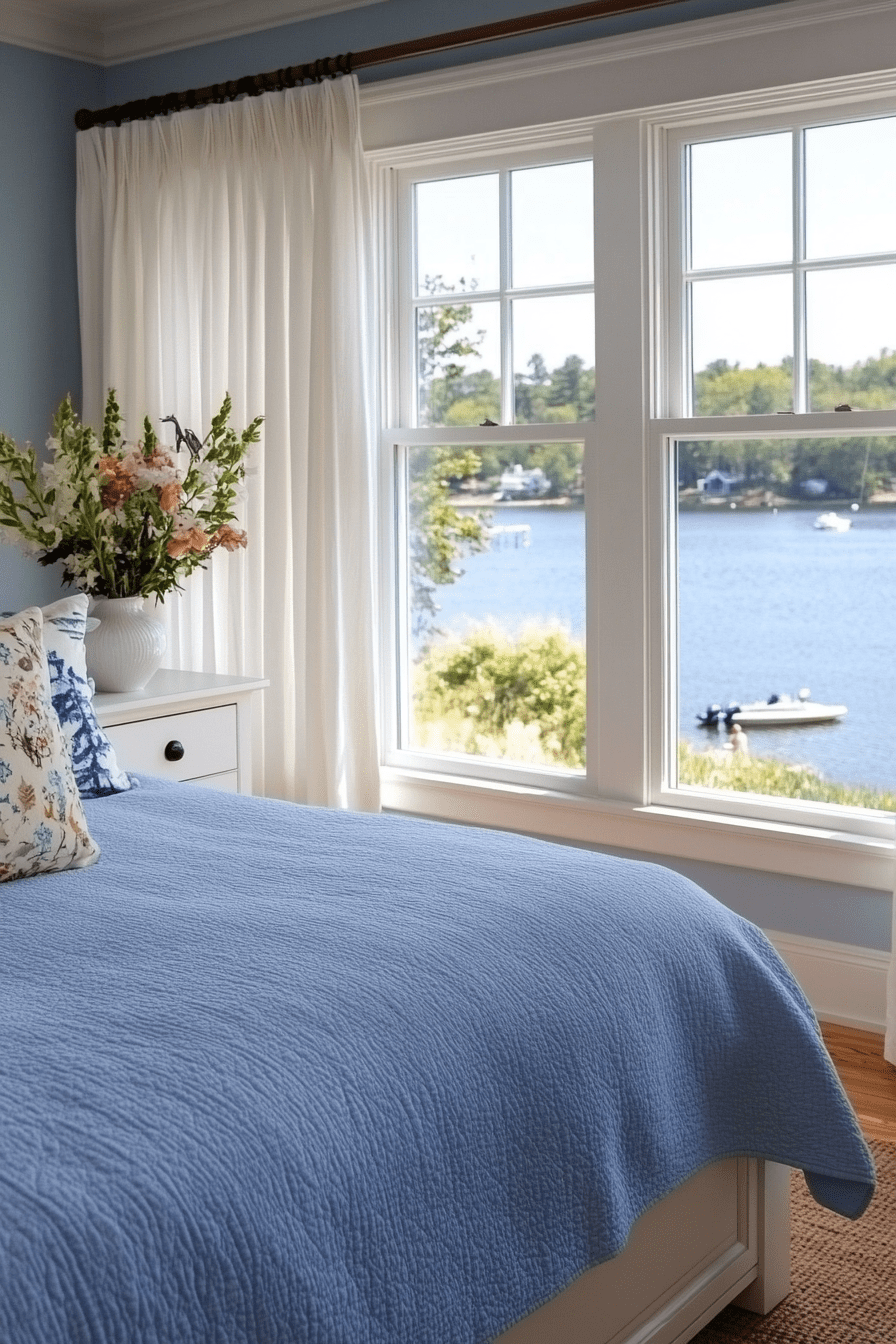
Blue is often associated with calm, serenity and serenity. Incorporating different shades of blue into your interior design can help you create a peaceful retreat from the outside world. Consider using soft blue tones for walls and furniture to convey the feeling of being by the sea or under a clear sky.
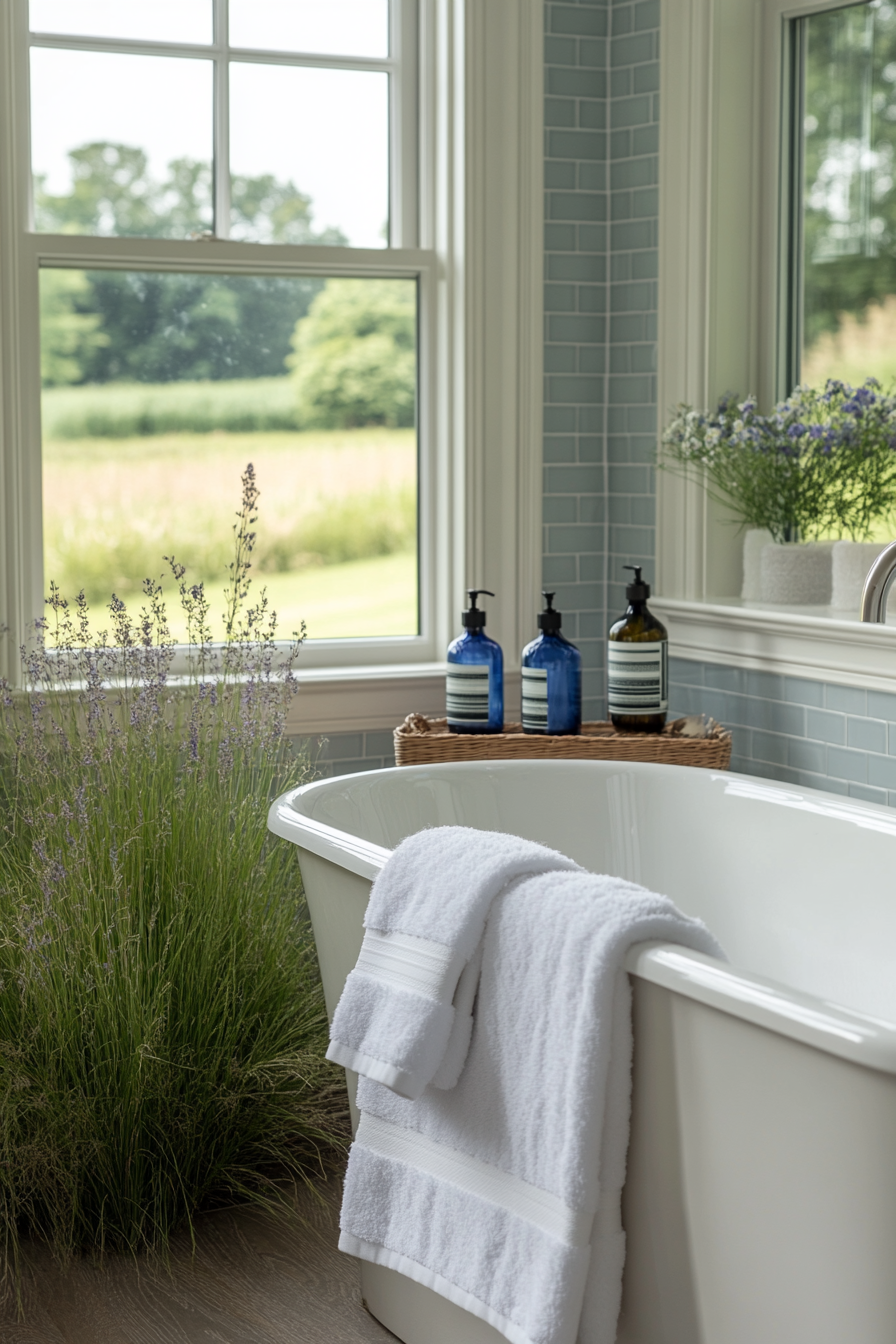
In bedrooms, light blue can promote restful sleep, making it an excellent choice for walls or bedding. For a more dynamic effect, combine blue with white or neutral tones to balance calm with a touch of modernity. Bathrooms are also perfect for shades of blue, where you can combine tiles and accessories to create a spa-like atmosphere.
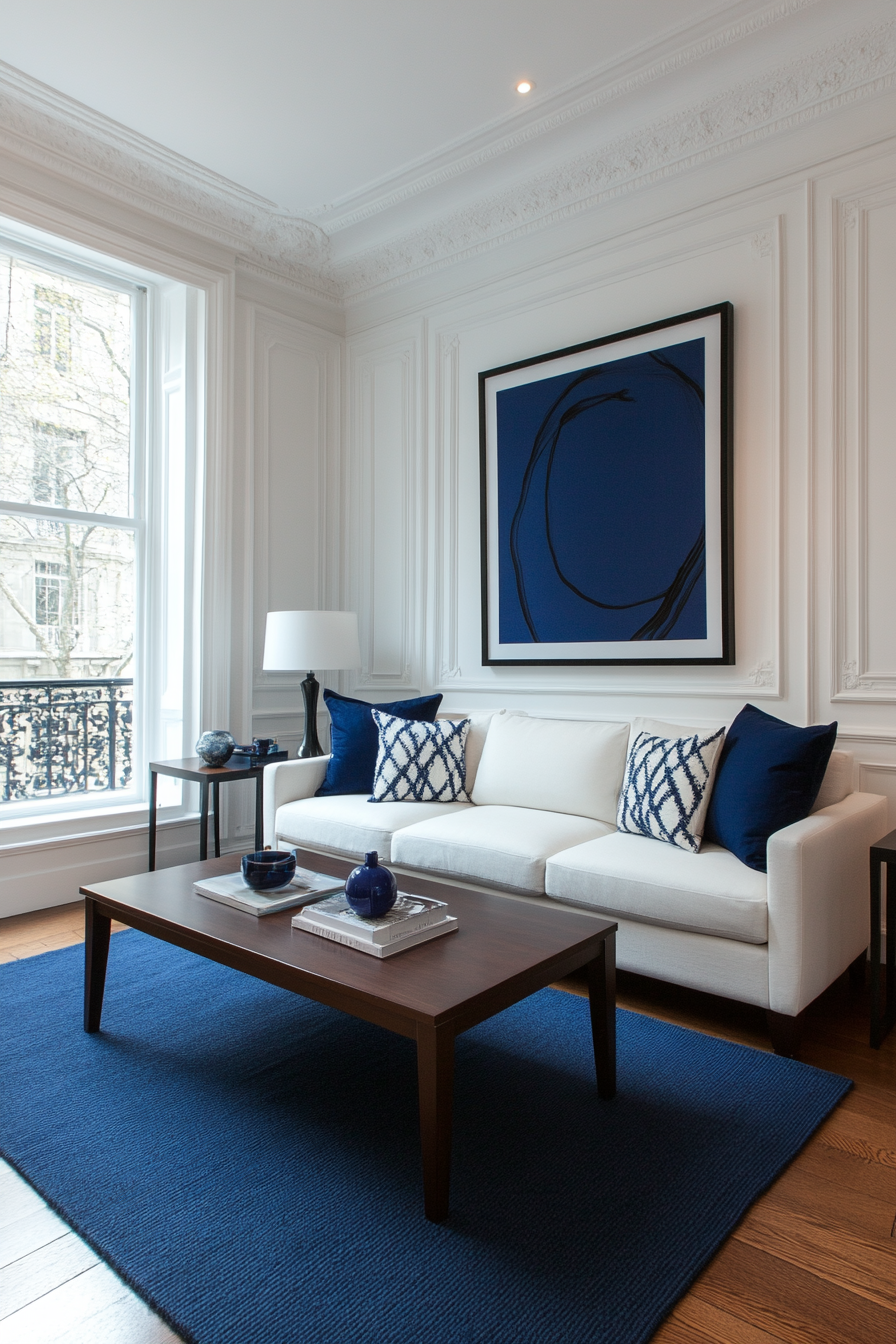
In common areas such as the living room, deeper shades of blue can provide a feeling of elegance and comfort. Navy or royal blue accents such as pillows, rugs, or artwork can add depth and character, giving the room an inviting and calm atmosphere.
2. Recharge your batteries with red accents
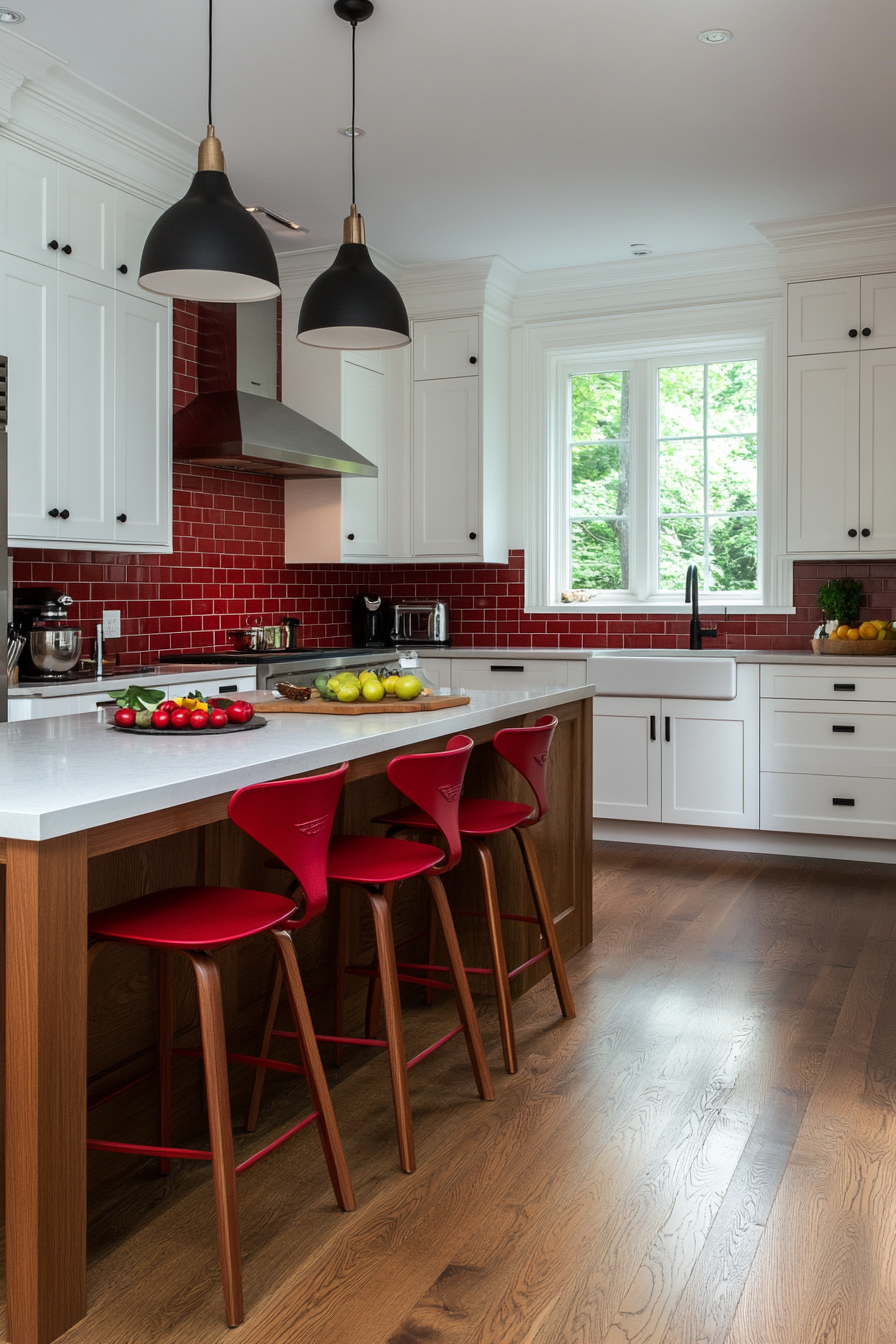
Red is a powerful color known for evoking strong emotions such as passion, excitement and energy. Using red in interior design can make rooms appear vibrant and vibrant. However, it is important to use it strategically so as not to overwhelm the space.
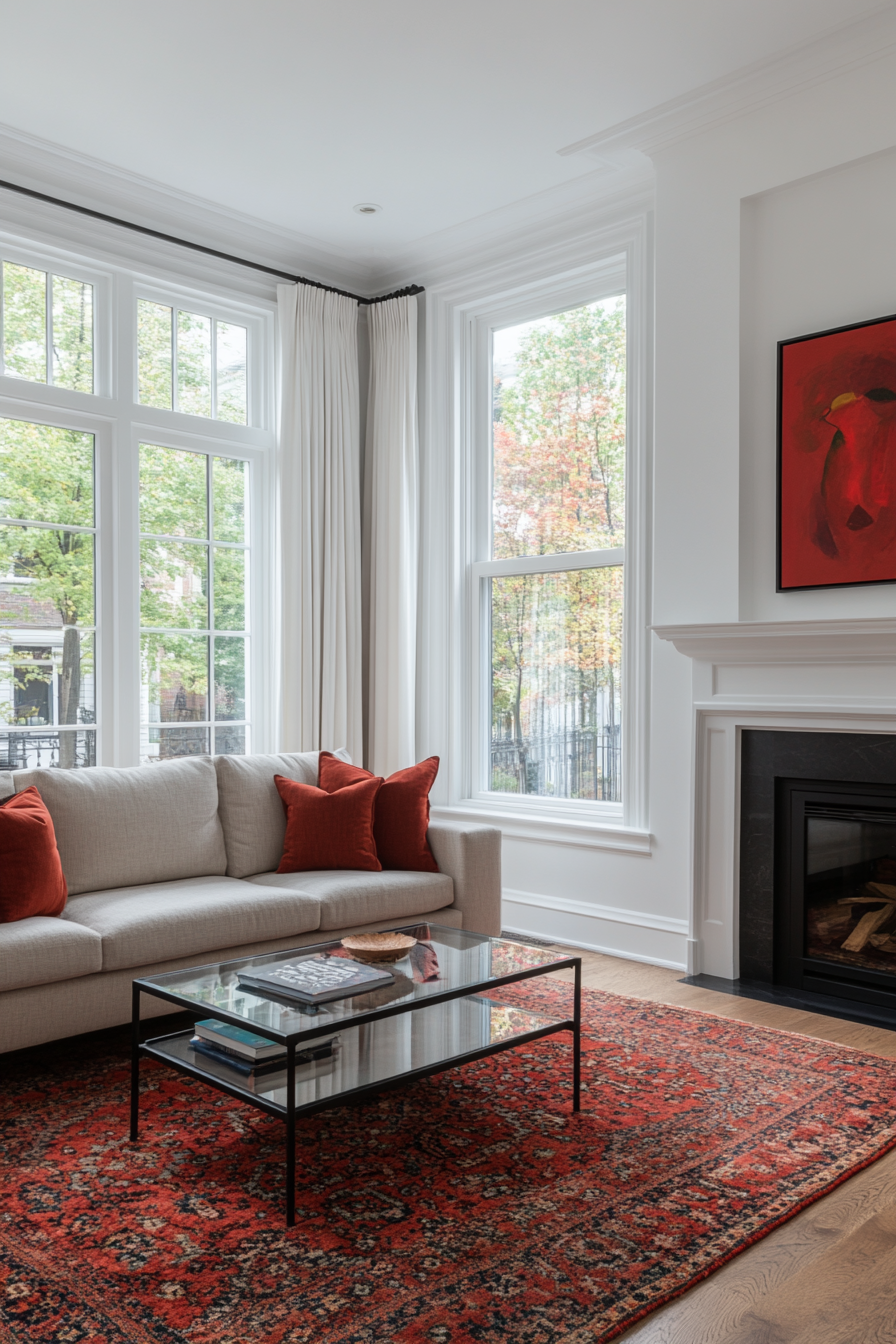
In the kitchen, red can stimulate appetite and conversation. Think red bar stools, a red backsplash, or small appliances in red tones to add energy to the space. Combining red with neutral tones like white or gray can help balance the intensity.
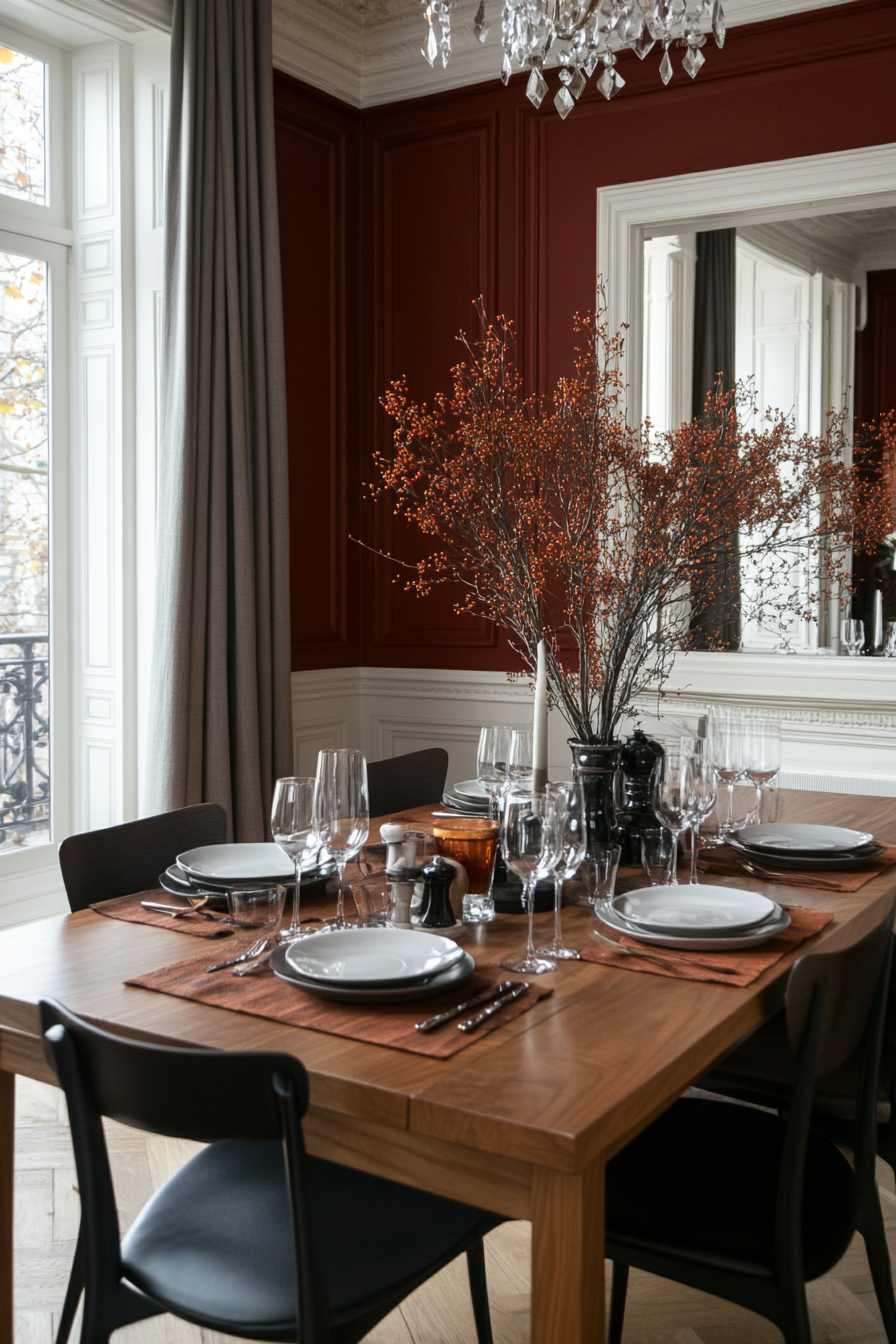
In the living area, red accents such as decorative pillows, rugs or works of art can create accents that attract attention and provide warmth. A bold red wall can also make a dramatic statement without overwhelming the entire room. Red goes well with different styles, from modern to traditional, allowing for versatile use.
3. Encourage creativity with yellow
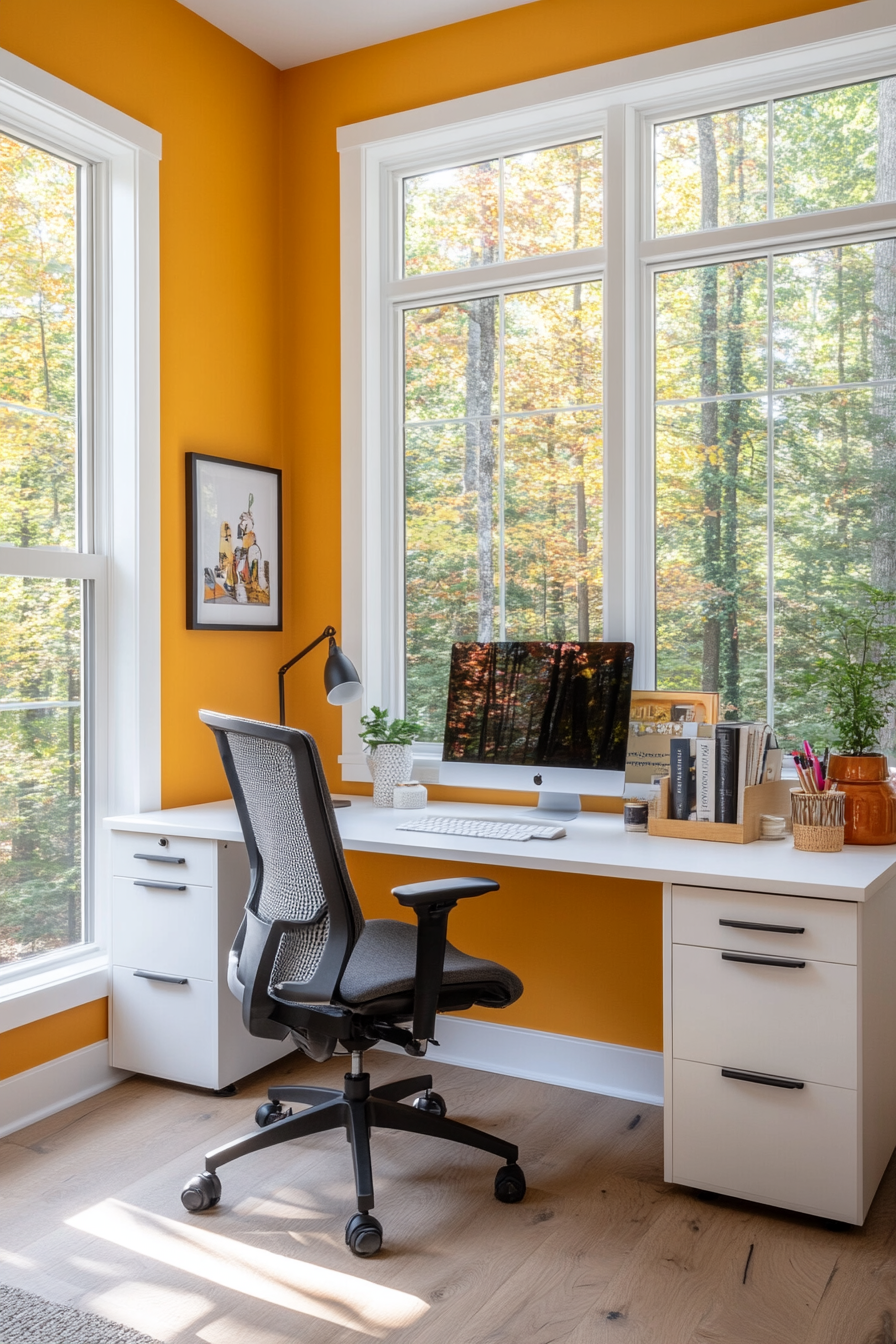 yellow accent wall”>
yellow accent wall”>Yellow is often associated with happiness, optimism and creativity. Incorporating yellow into your interior design can brighten up rooms and create a cheerful and creative atmosphere. It is particularly effective in areas where you want to feel invigorated and invigorated.
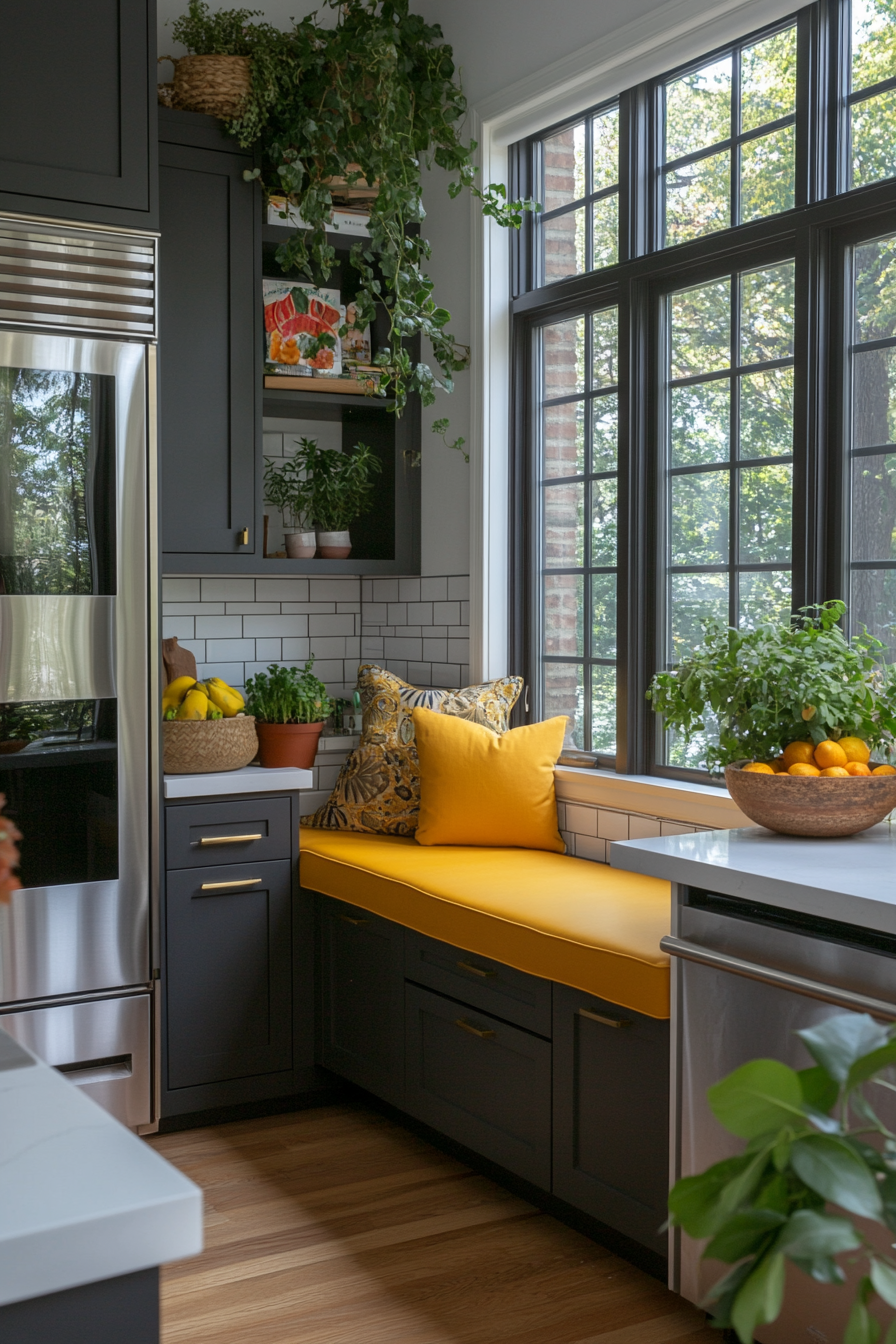
In home offices or creative studios, yellow can stimulate the mind and increase productivity. Consider a yellow accent wall, yellow desk accessories, or artwork in yellow tones to create an inspiring environment. Balancing yellow with neutral colors can prevent the room from feeling too cluttered.
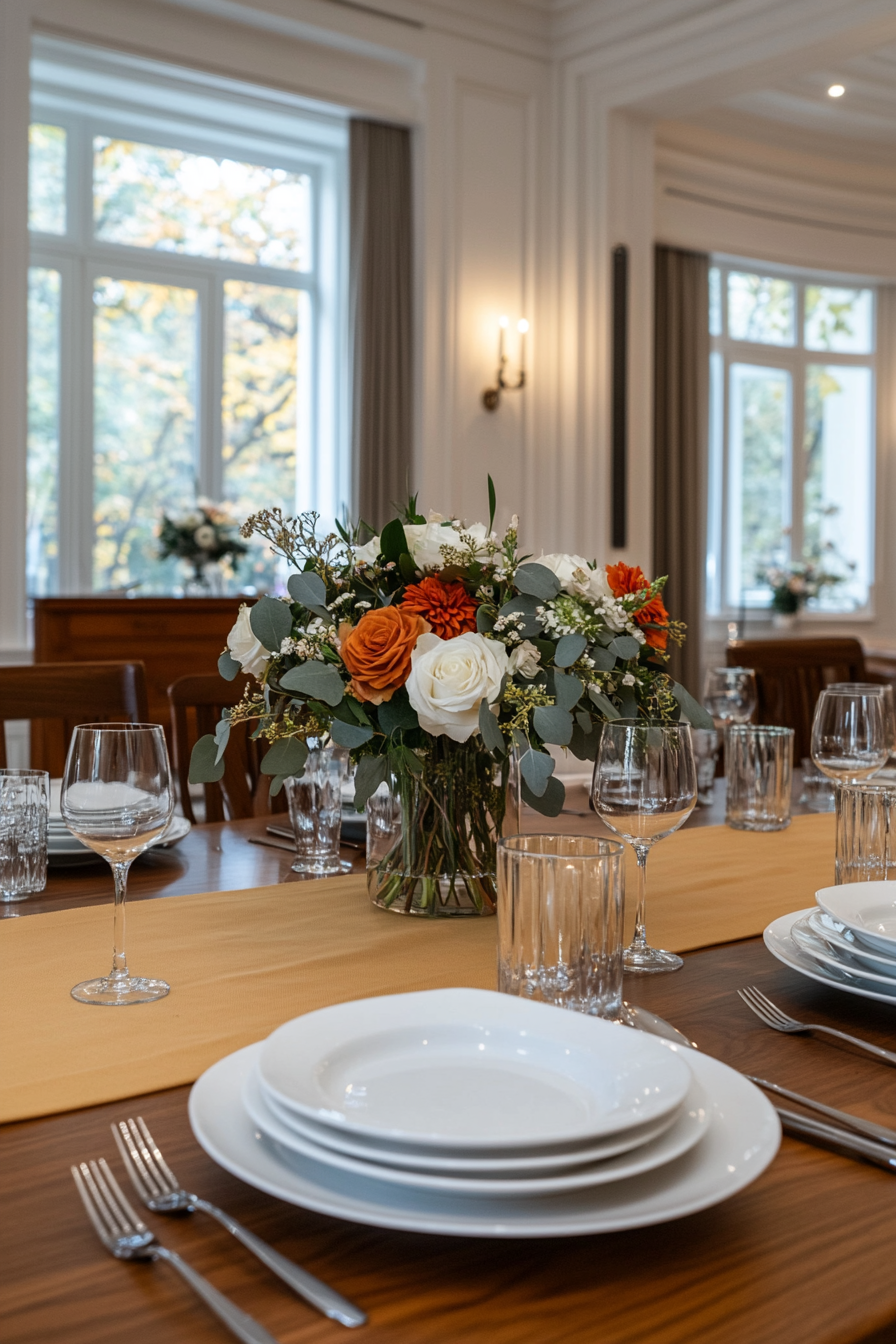
In kitchens and dining rooms, yellow can create a welcoming and cheerful atmosphere. Yellow cabinets, a sunny breakfast nook, or yellow table linens can add a touch of warmth and make the room feel more inviting. Combine yellow with white or light wooden surfaces for a fresh and airy look.
4. Strike a balance with green
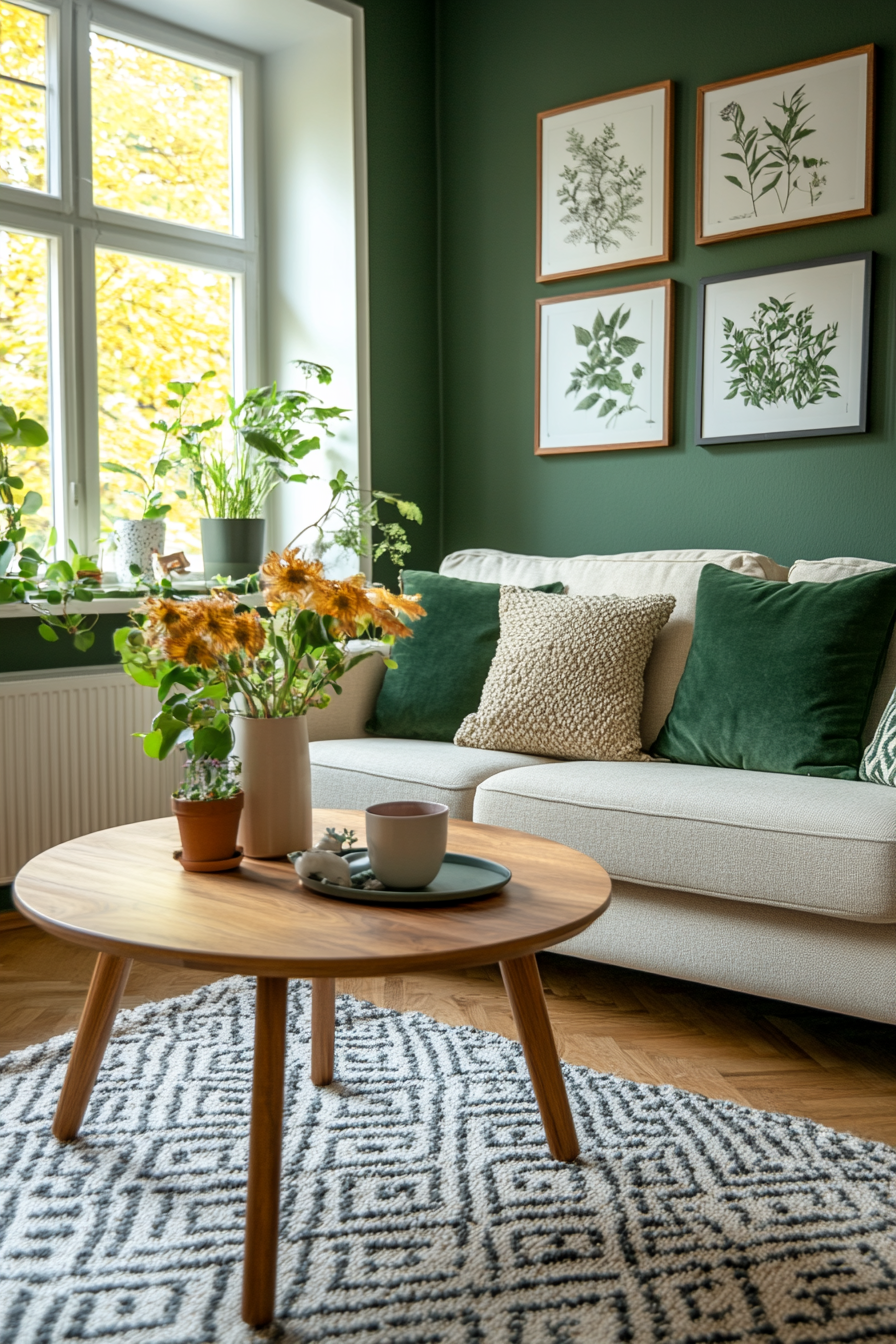
Often associated with nature, balance and renewal, green can add a refreshing and calming atmosphere to your interior design. It is a versatile color that can be used in different shades to evoke different feelings, from calm to rejuvenation.
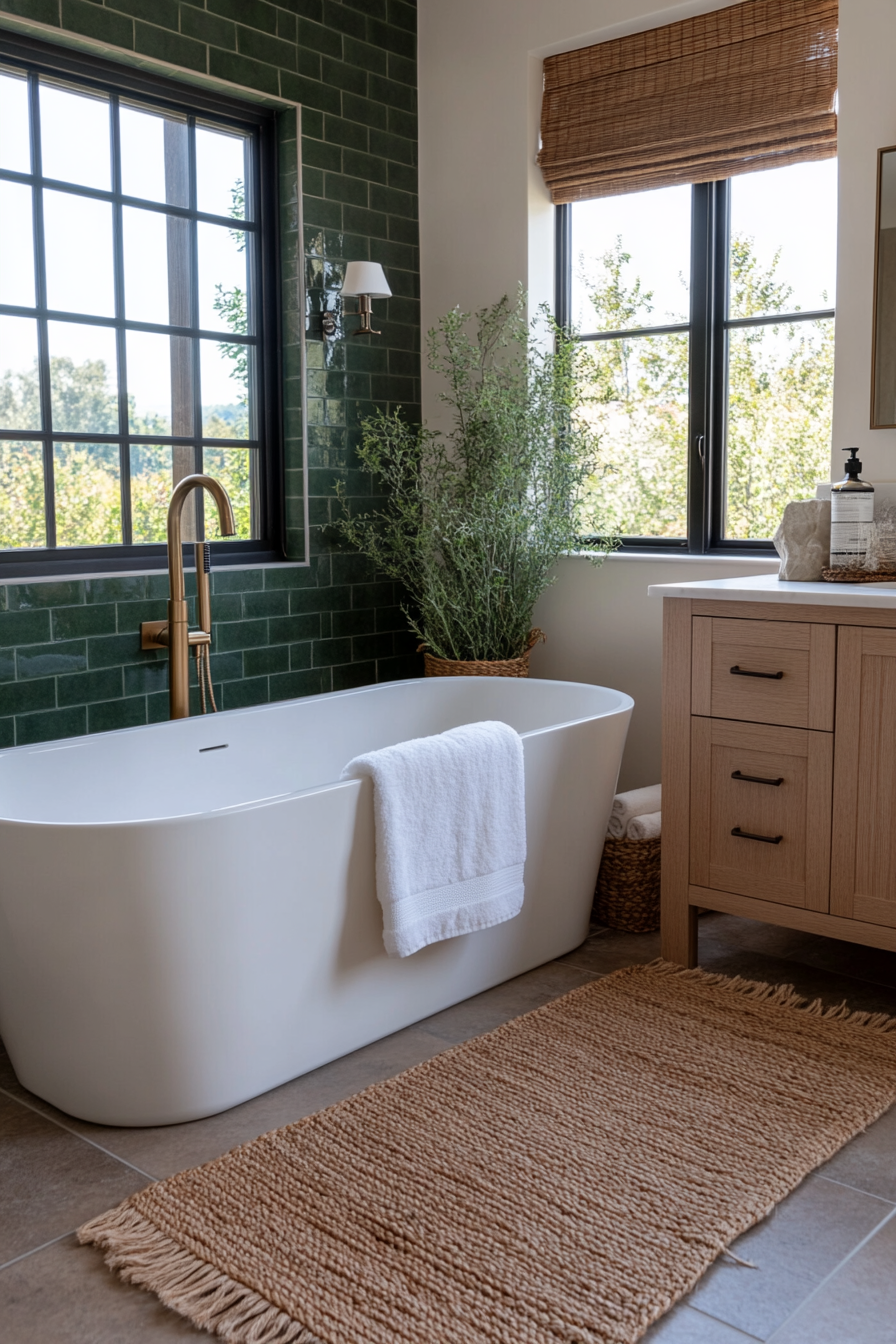
In living spaces, soft green walls or green upholstery can create a feeling of harmony and relaxation. Adding plants or botanical prints can enhance this natural feel and make the space feel like an indoor oasis. Green pairs beautifully with wood tones and neutral colors, creating a balanced and inviting environment.
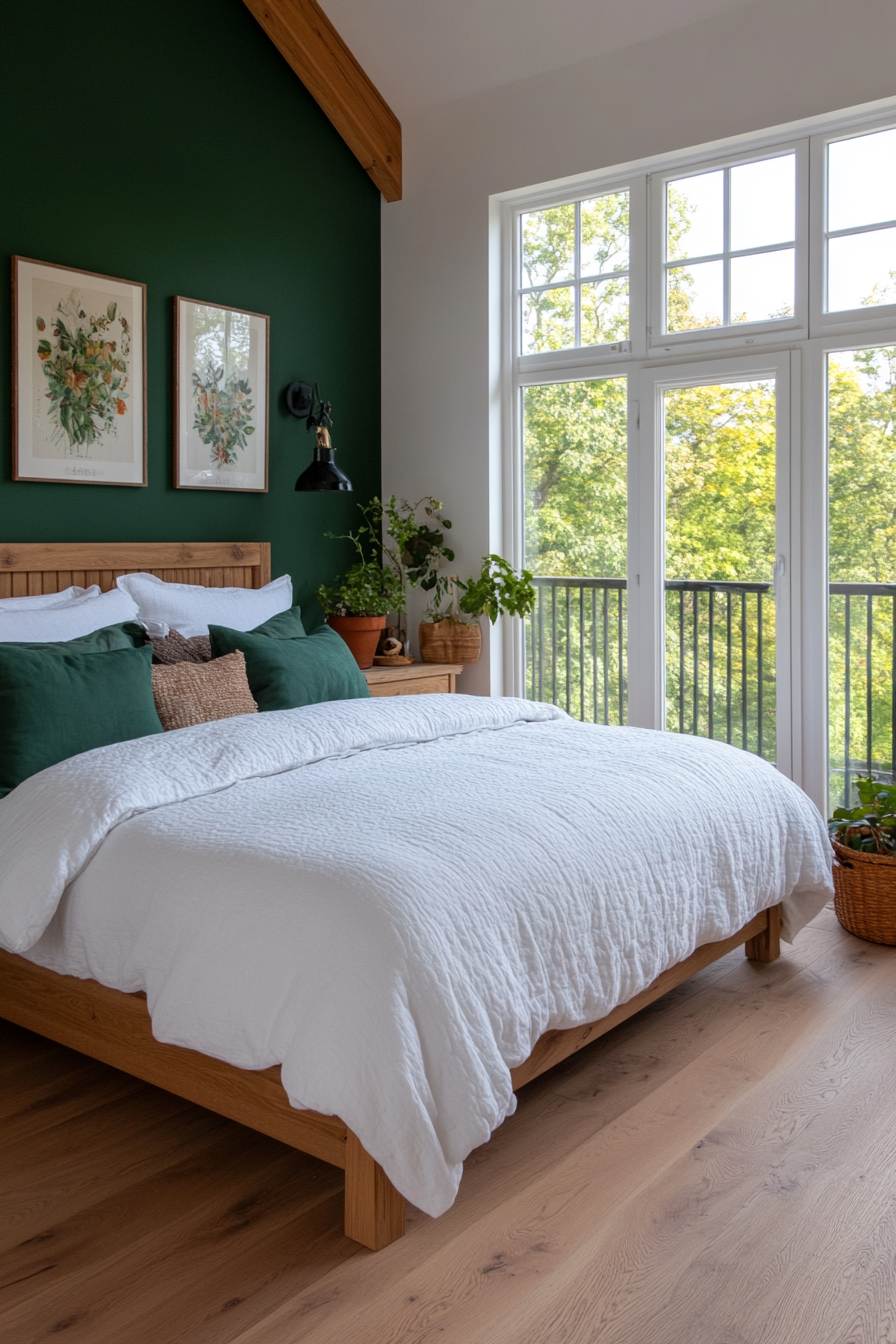
In the bathroom, green tiles or accessories can create a spa-like atmosphere. Light green or mint can feel refreshing and clean, while darker greens like emerald can add a touch of luxury. The use of natural materials such as stone or bamboo can perfectly complement the green tones.
5. Evoke luxury with purple
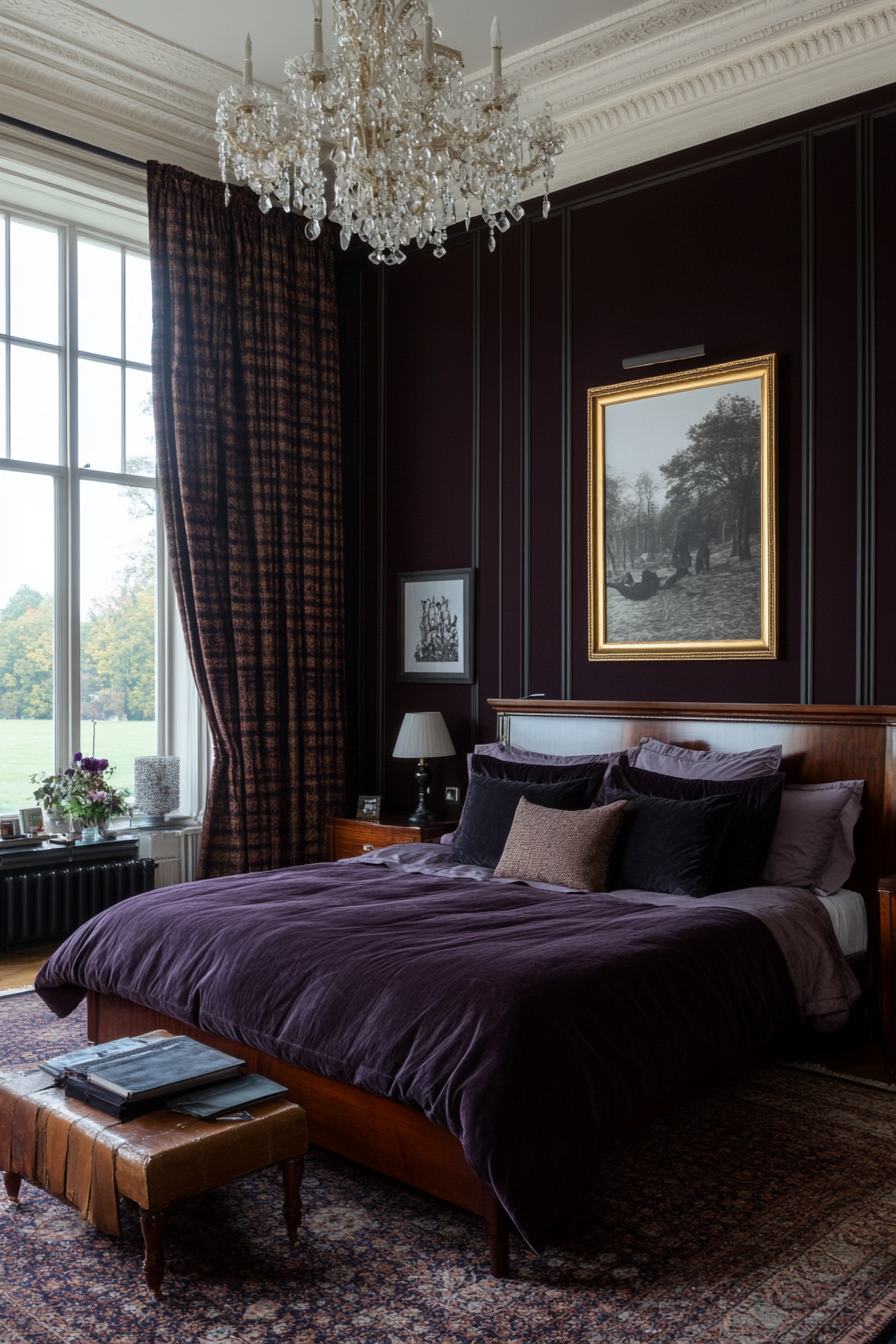
Purple is often associated with luxury, creativity and sophistication. Using purple in interior design can add a touch of elegance and opulence to your space. It is a versatile color that can range from light lavender to deep plum, giving each color a unique appeal.
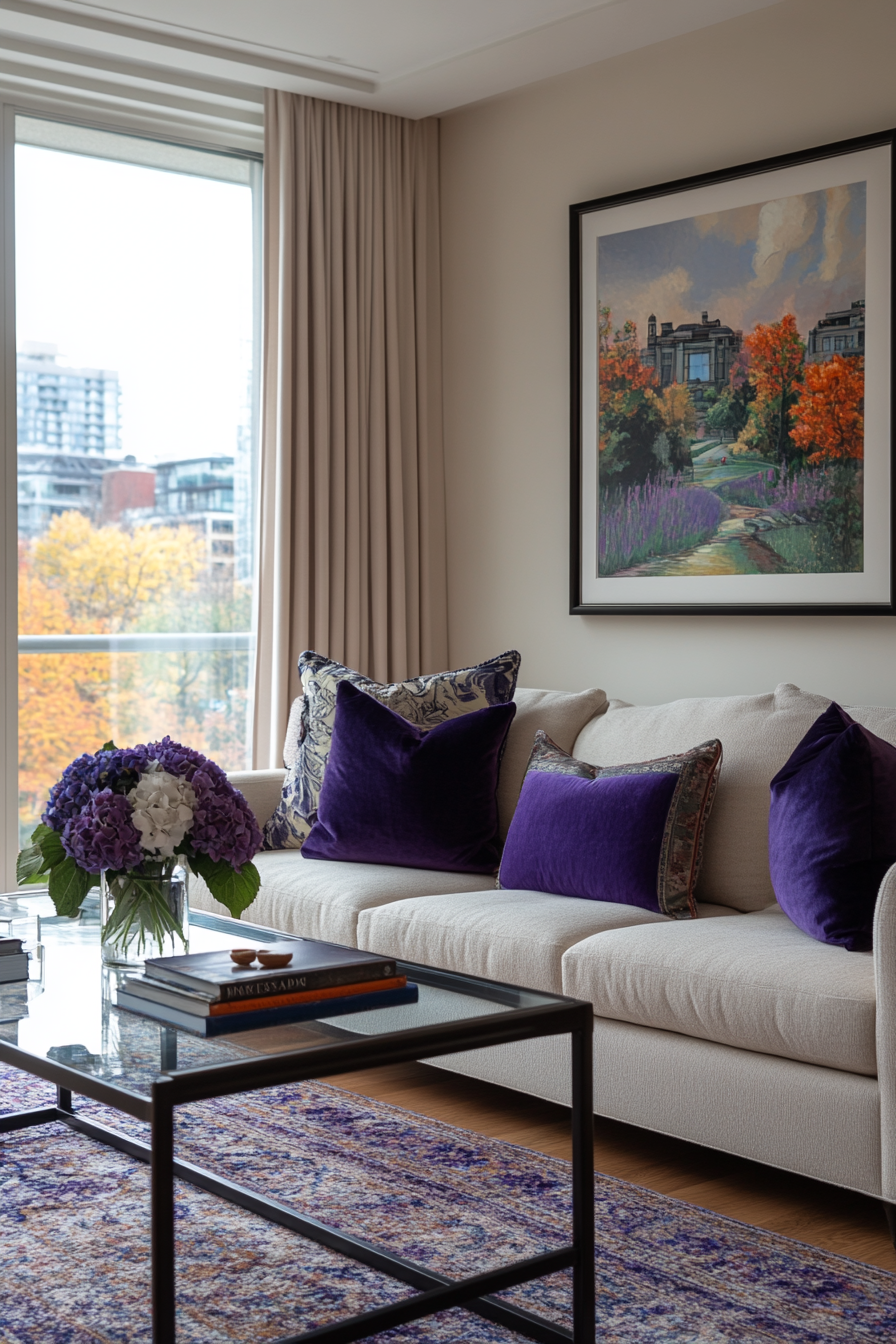
In bedrooms, deep purple tones such as plum or eggplant can create a luxurious and intimate atmosphere. Consider using purple bedding, curtains or a feature wall to make the room more regal and cozy. Combining purple with metallic accents like gold or silver can enhance the opulence of the room.
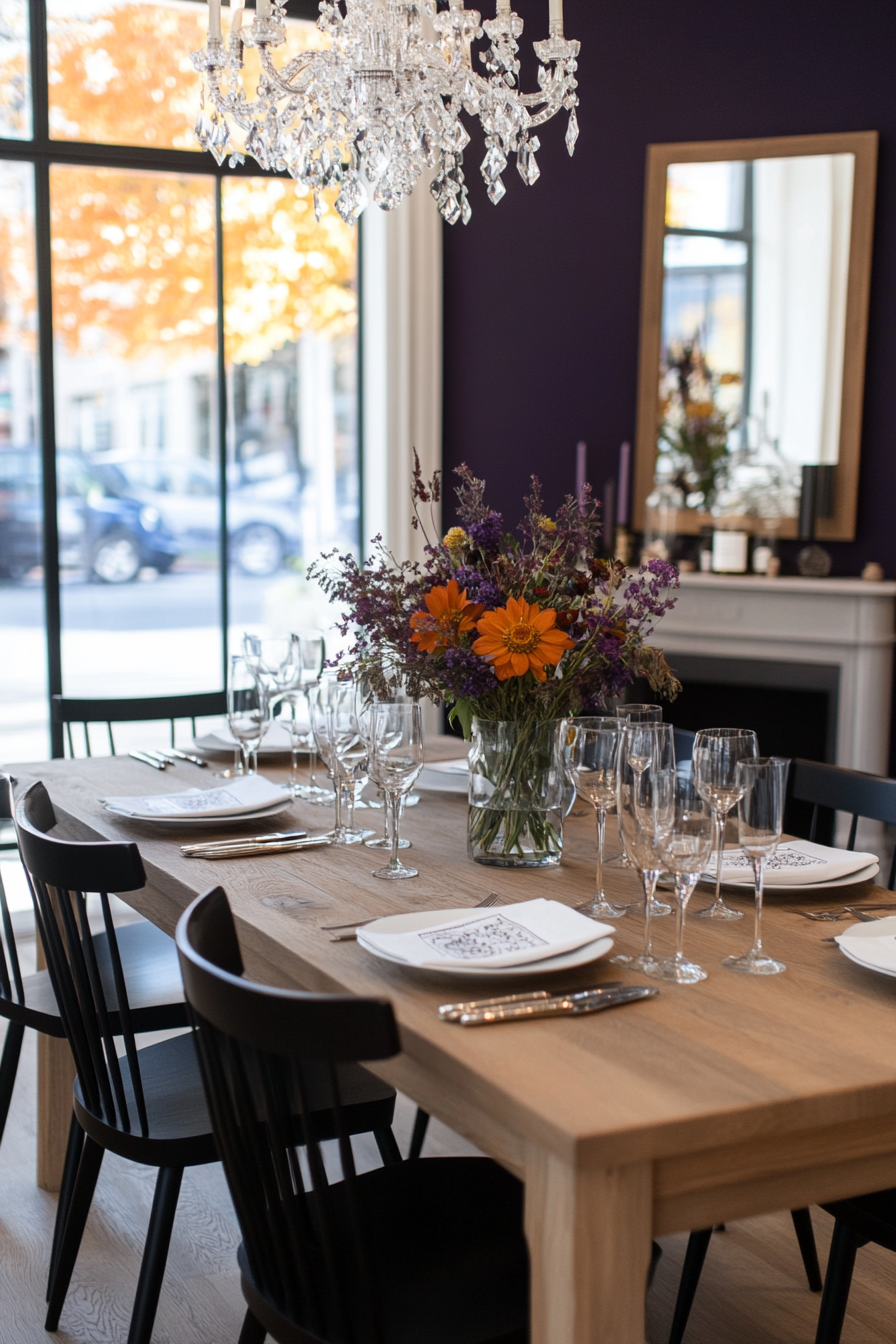
In living rooms, light shades of purple or lavender can create a soft, calming atmosphere, while darker shades of purple can add depth and drama. Purple upholstery, rugs or accent pieces can make a bold statement. Mixing purple with neutral tones can keep the look balanced and sophisticated.
6. Improve focus with white
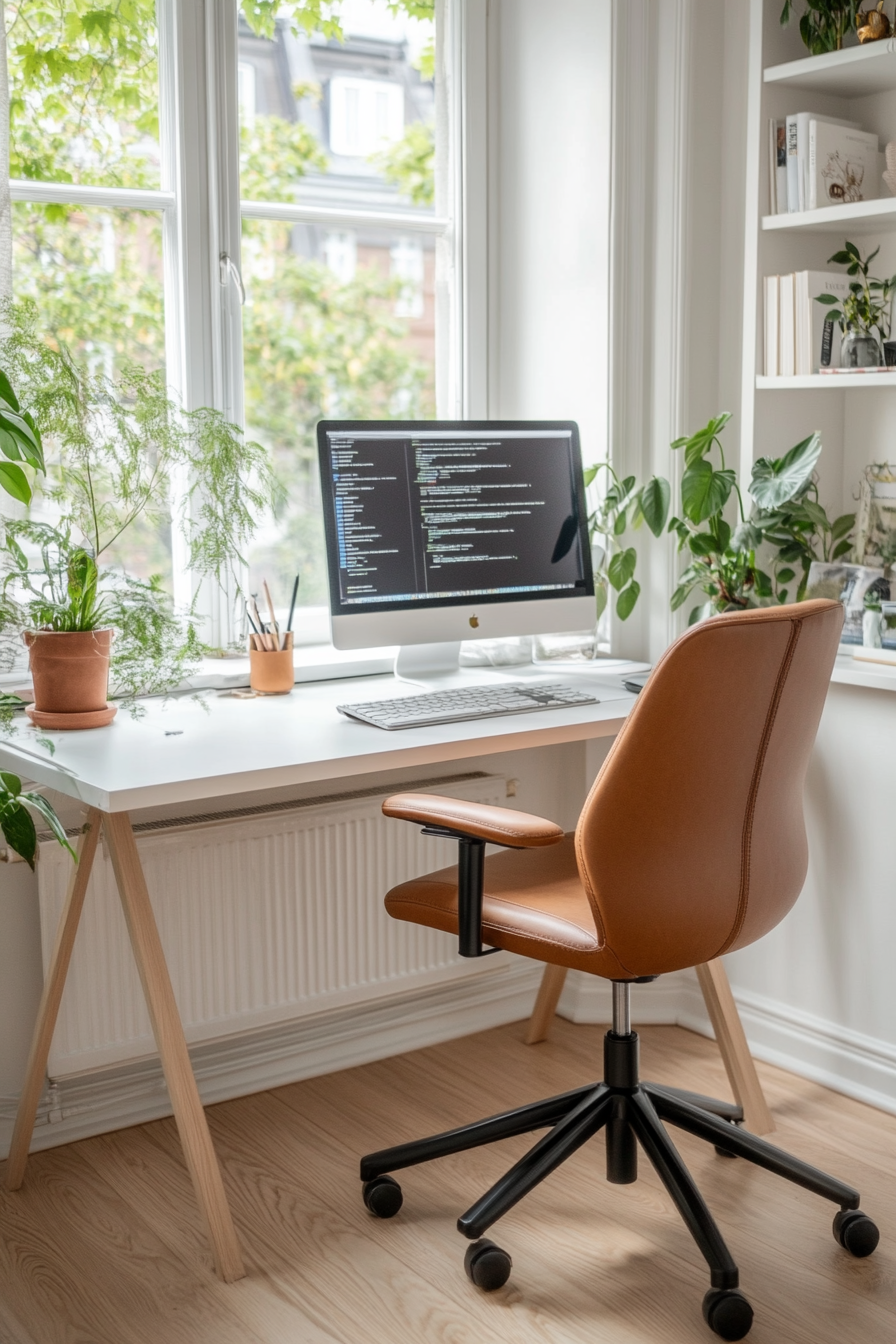
White is often associated with purity, simplicity and focus. Using white in interior design can create a clean, uncluttered environment that promotes concentration and clarity. It is an ideal color for minimalist designs and gives rooms an open and airy feel.
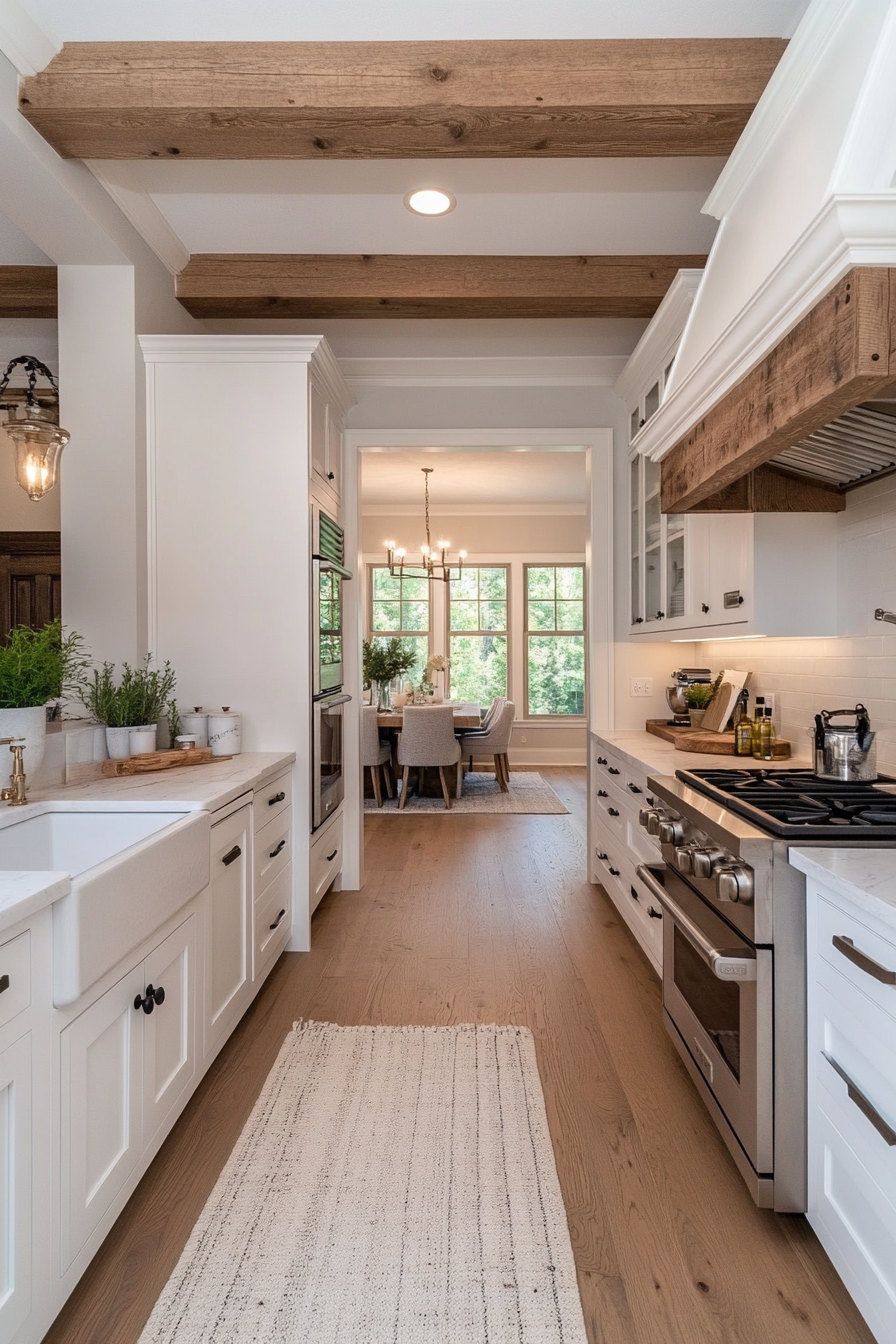
In home offices, a white color scheme can increase concentration and productivity. Consider white walls, desks and storage solutions to create a streamlined workspace. Adding some colorful accessories can prevent the room from feeling too sterile.
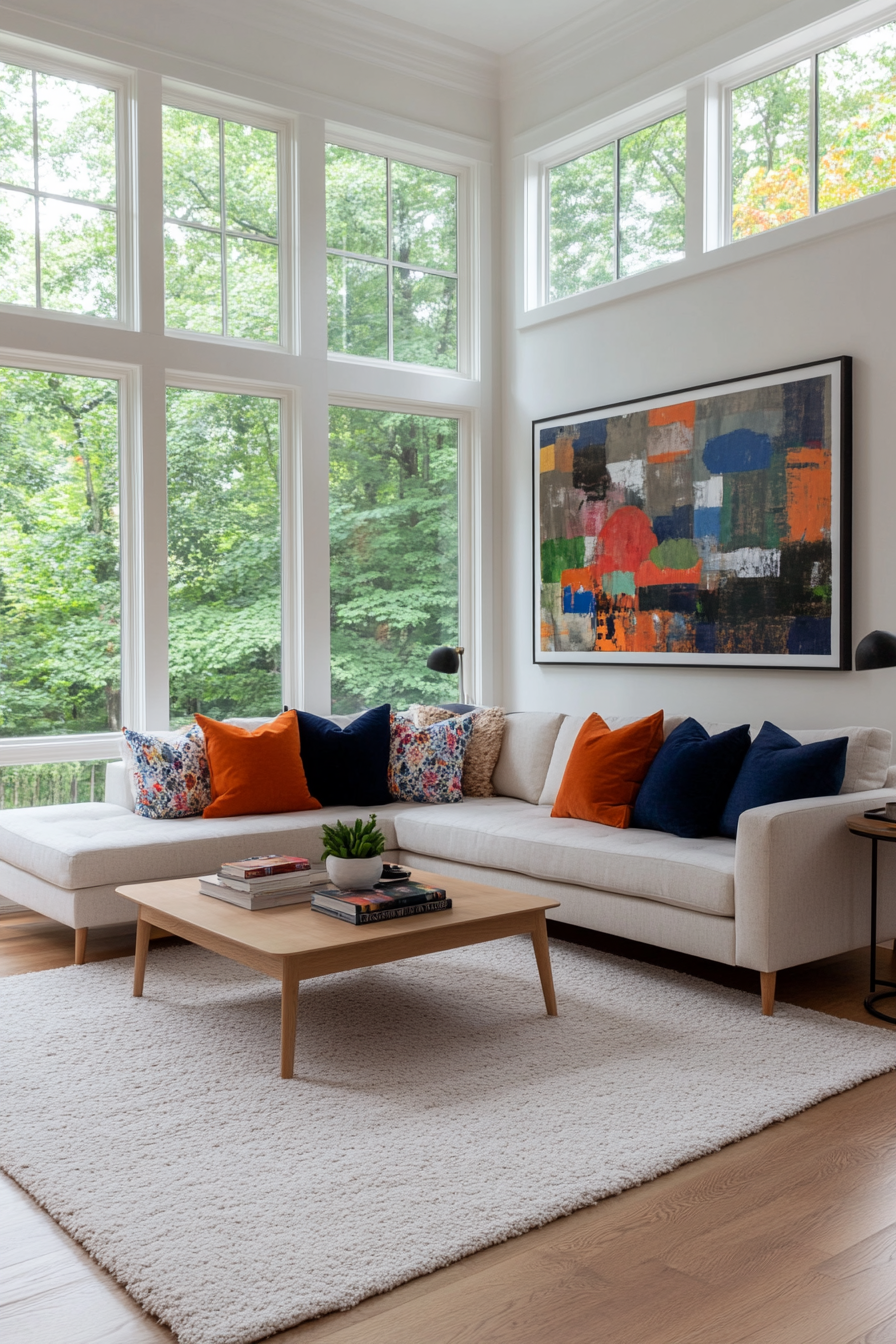
In kitchens, white can create a timeless and fresh look. White cabinets, countertops, and tiles can make the room feel larger and more open. Combining white with natural materials such as wood or stone can add warmth and texture.
7. Awaken passion with orange
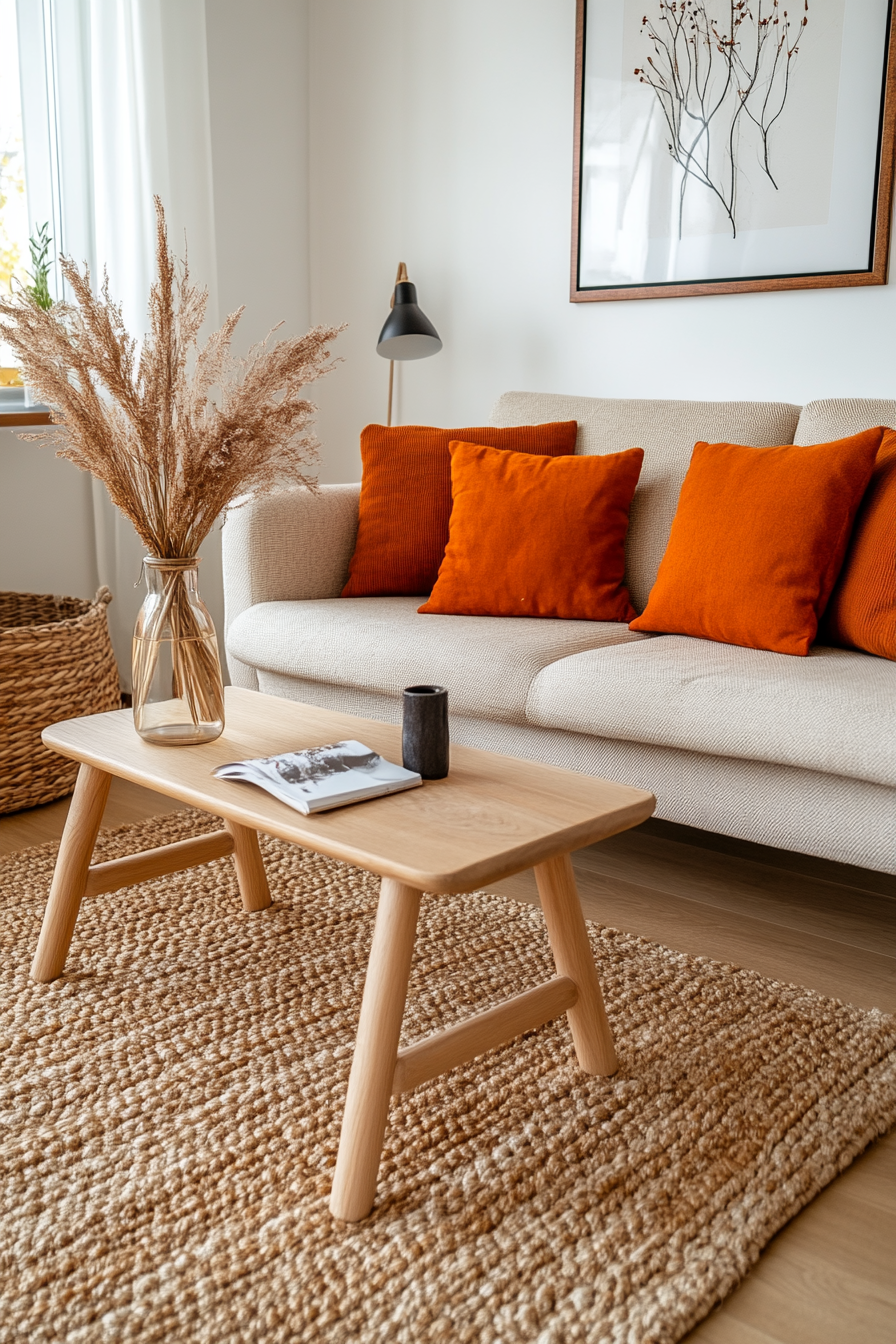
Orange is associated with enthusiasm, creativity and warmth. Incorporating orange into your interior design makes rooms appear lively and inviting. It is a bold color that can be used in different shades to evoke different moods.
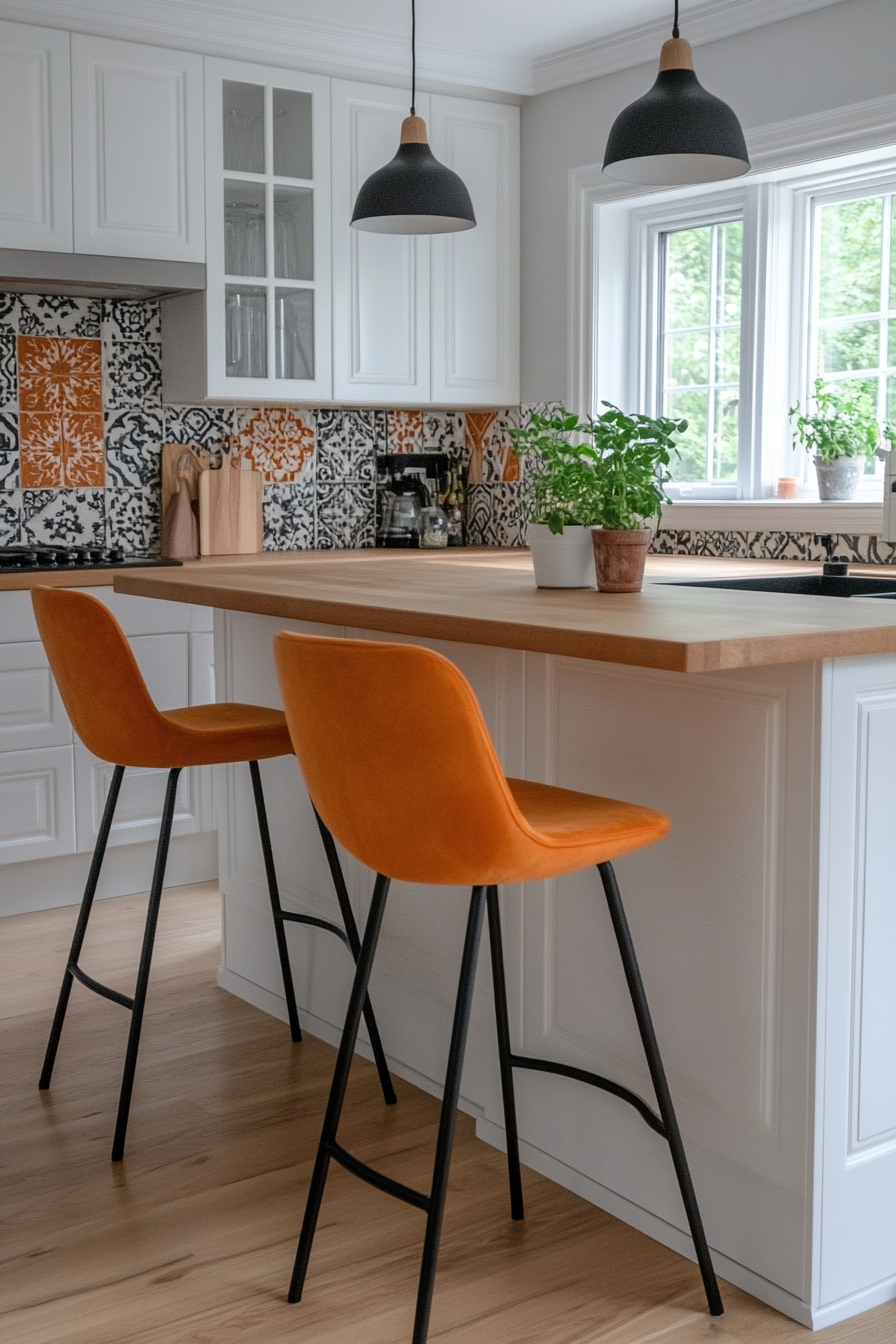
In living rooms, burnt orange or terracotta can provide warmth and comfort. Consider orange pillows, rugs, or artwork to create a cozy atmosphere. Combining orange with neutral tones like beige or gray can balance its vibrancy.
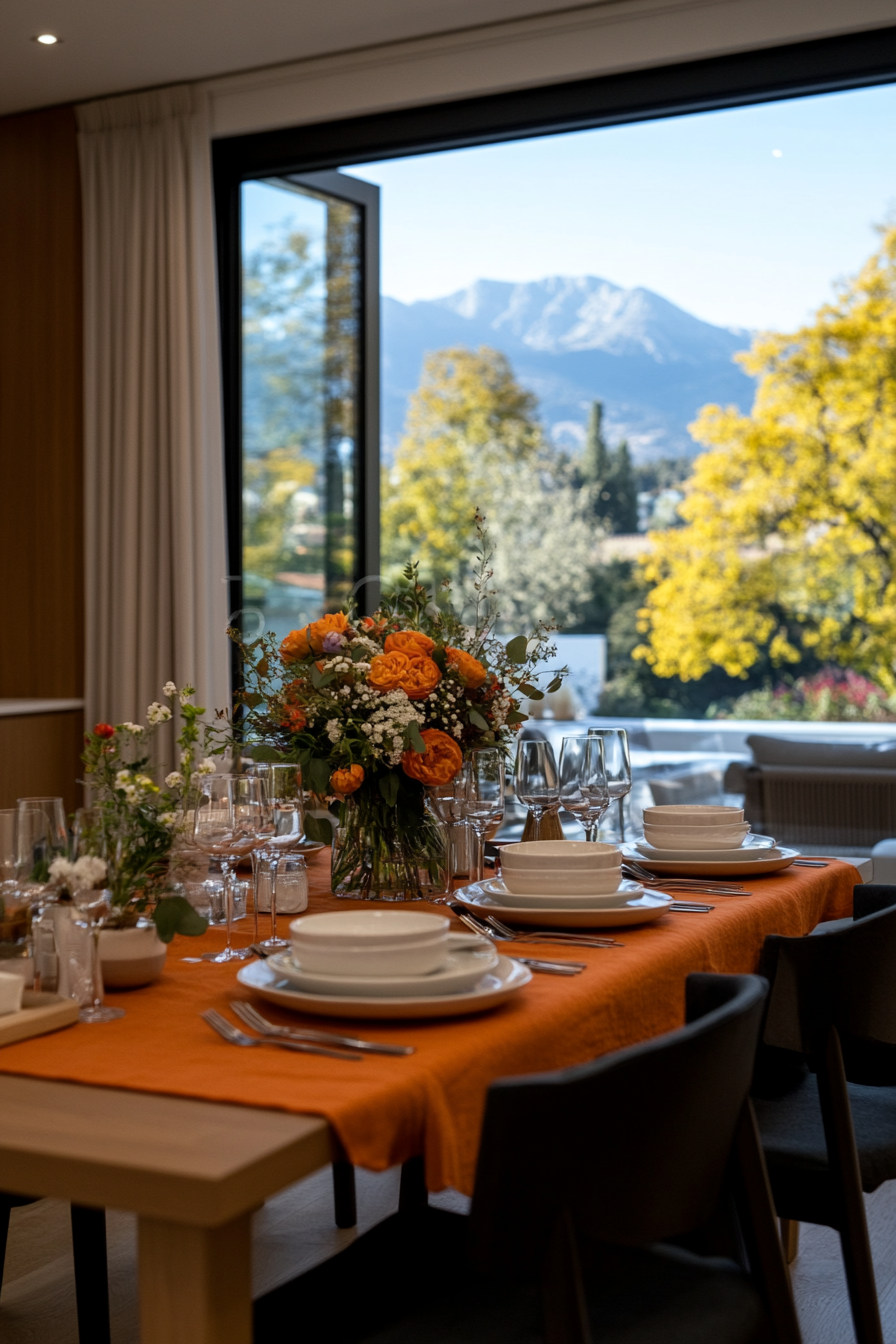
In kitchens and dining areas, orange can stimulate appetite and conversation. Orange bar stools, a backsplash, or table linens can add energy to the room. Combining orange with natural materials like wood can create a rustic and inviting atmosphere.
8. Promote relaxation with pink
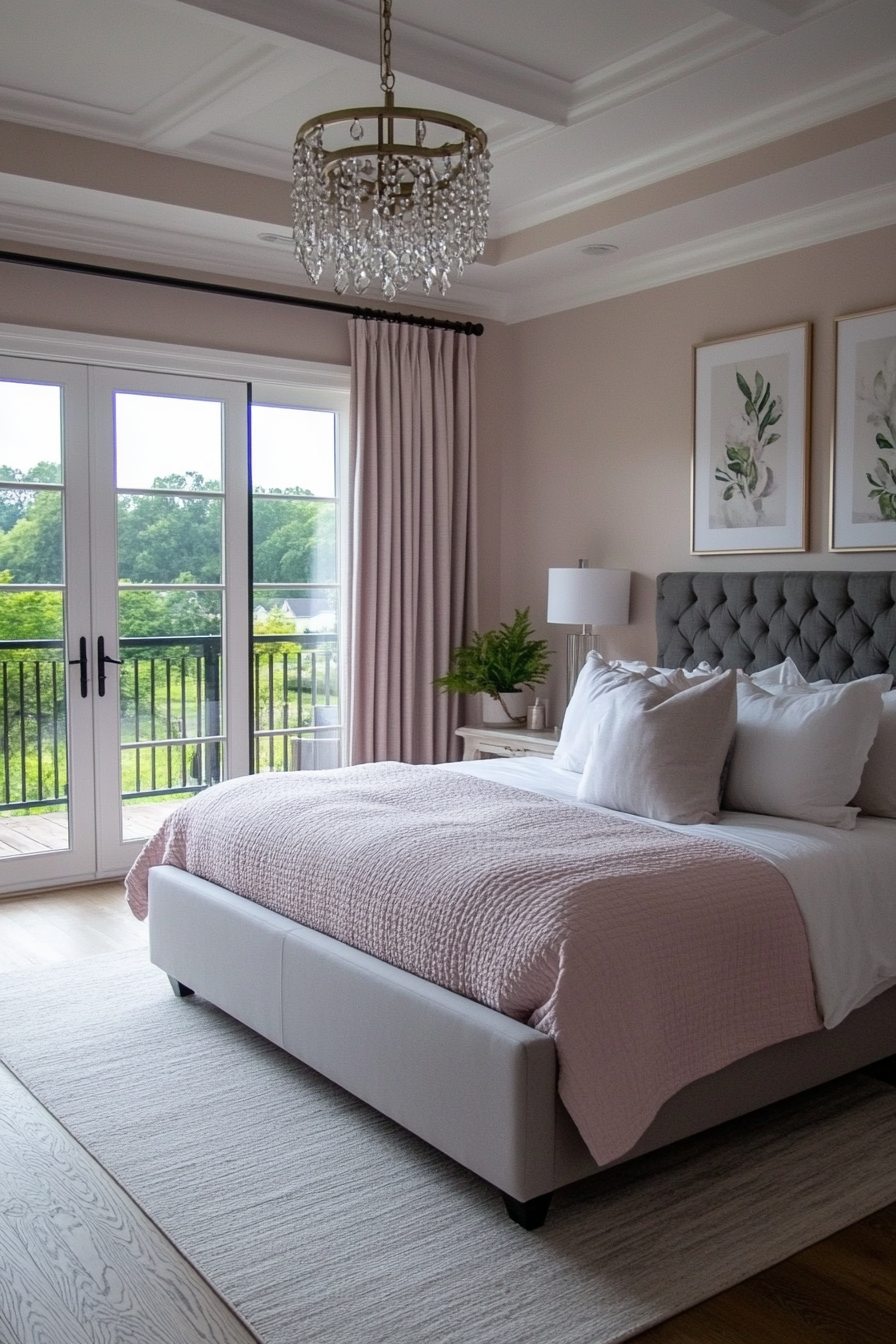
Pink is often associated with love, compassion and relaxation. Using pink in interior design can create a calming and calming atmosphere. It is a versatile color that can range from soft pastels to bold hues, each with its own unique charm.
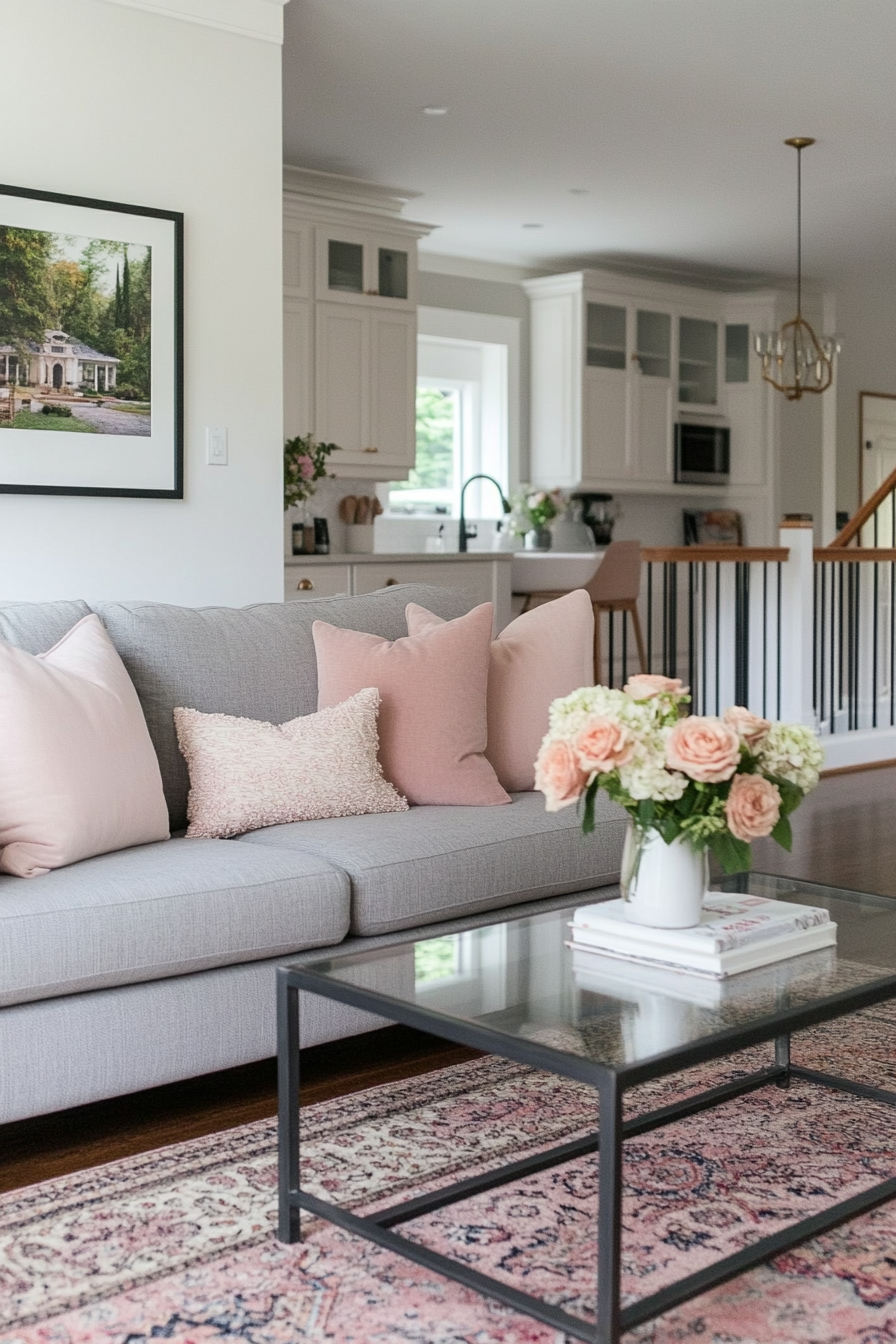
In bedrooms, soft pink tones can create a calming and romantic atmosphere. Consider pink bedding, curtains, or a feature wall to give the room a cozy and inviting feel. Combining pink with neutral tones like white or gray keeps the look balanced and elegant.
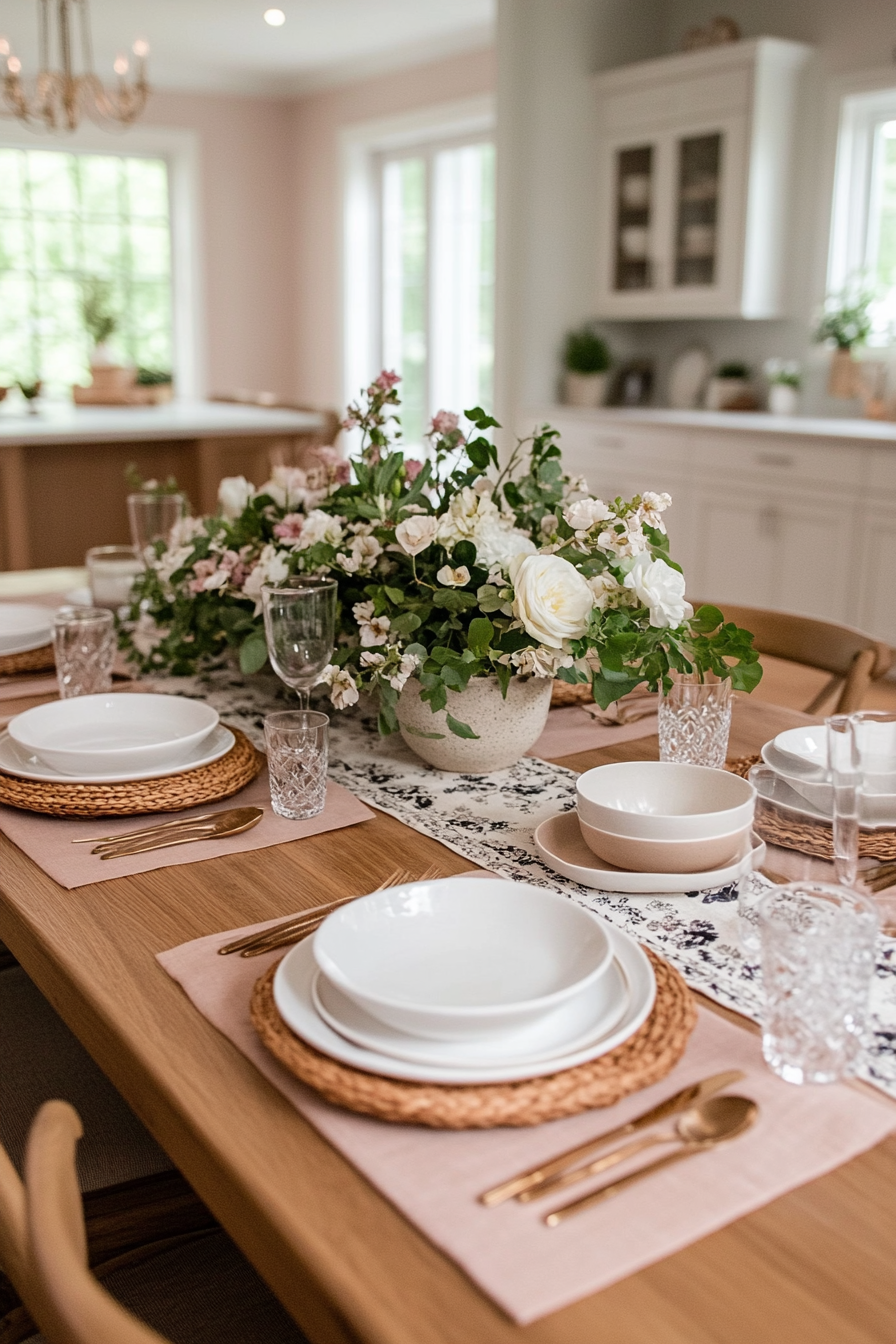
In living rooms, pink accents such as pillows, rugs or artwork can add warmth and softness. A pink sofa can make a bold yet sophisticated statement. Mixing pink with metallic accents like gold or rose gold can enhance the elegance of the room.
9. Ground your space with Brown
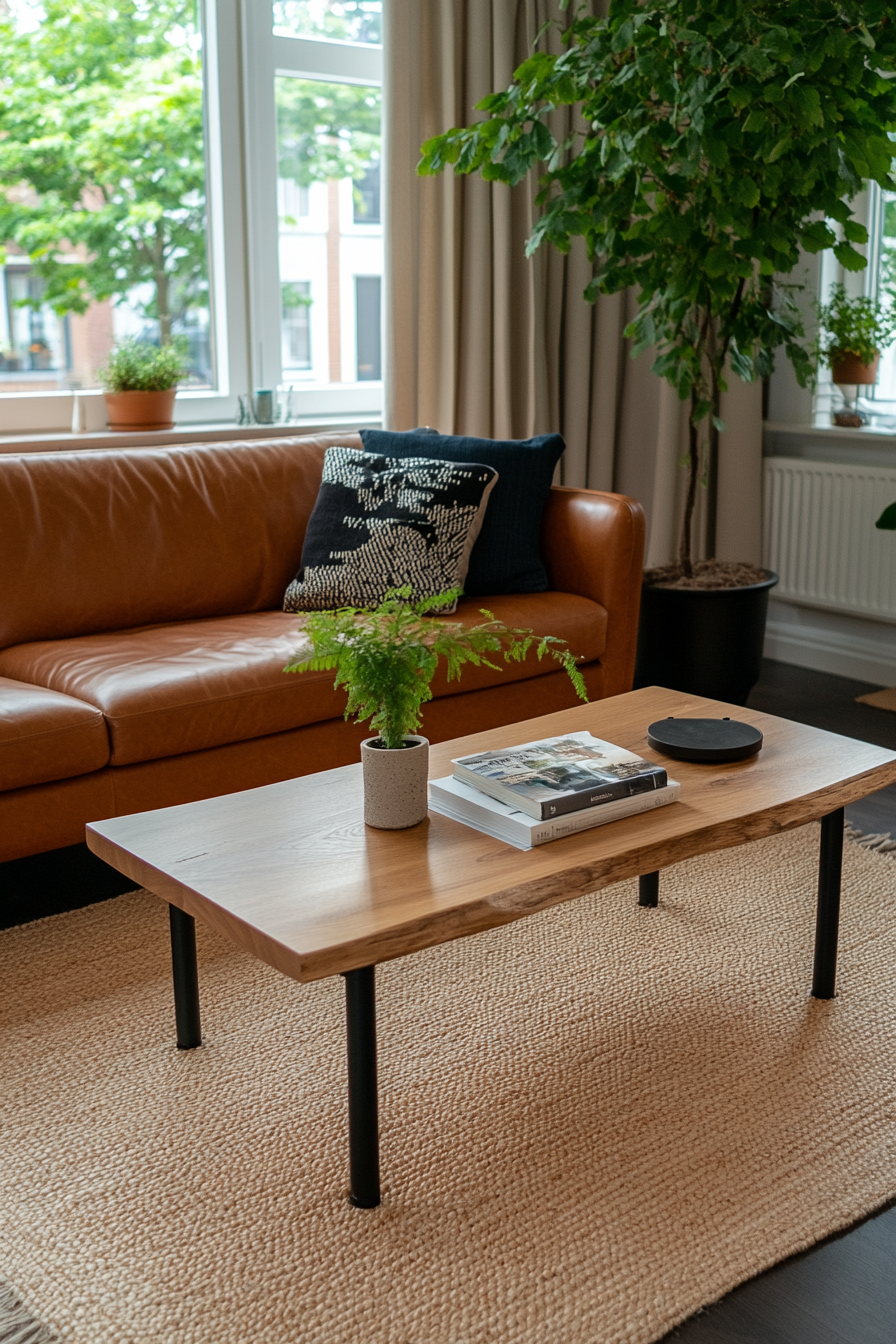
Brown is associated with stability, comfort and warmth. Using brown in interior design can create a grounded and welcoming atmosphere. It is a versatile color that goes well with different styles, from rustic to modern.
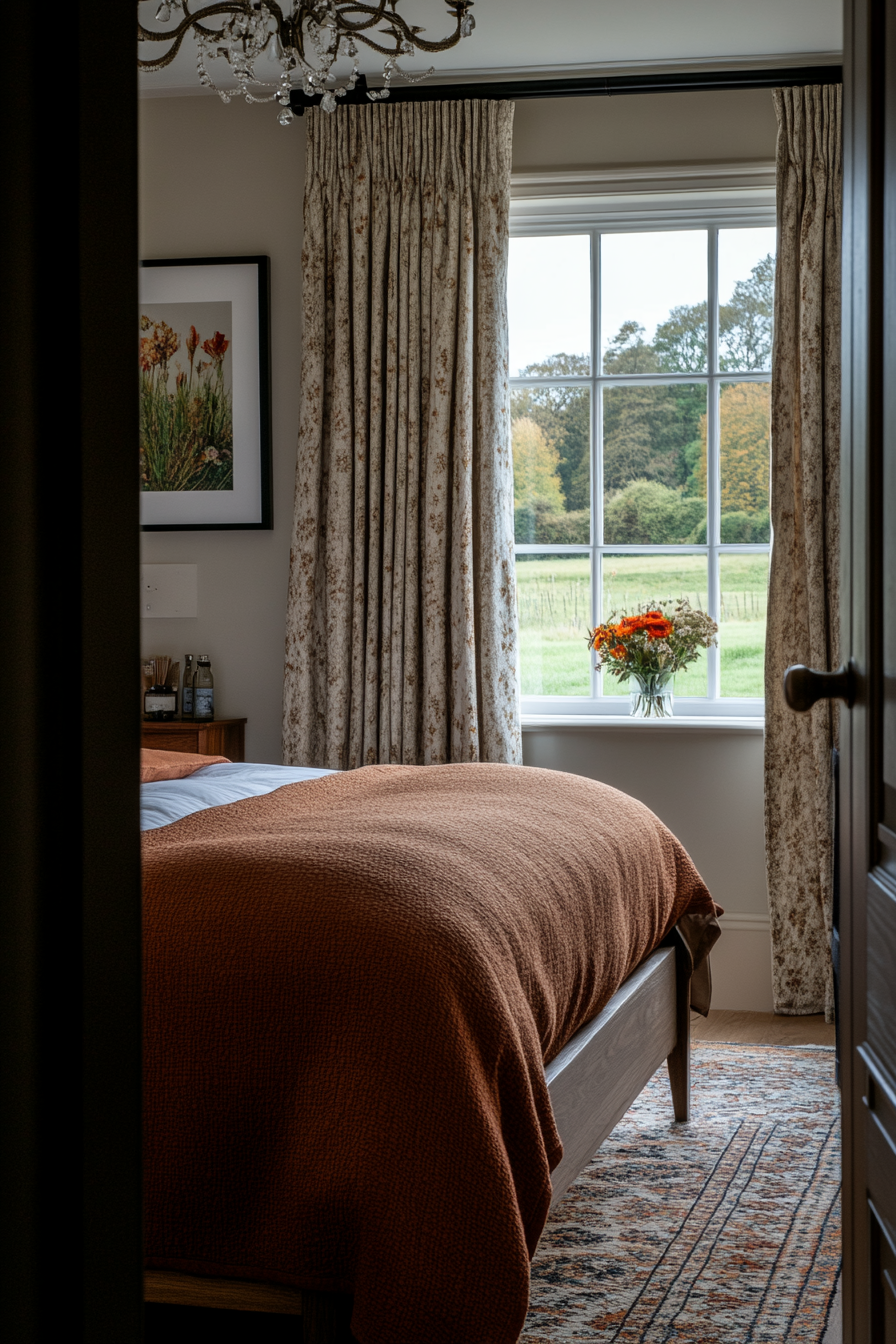
In living rooms, brown furniture such as leather sofas or wooden coffee tables can provide warmth and coziness. Consider brown rugs or throw blankets to add to the cozy vibe. Combining brown with earth tones such as green or beige can create a natural and balanced look.
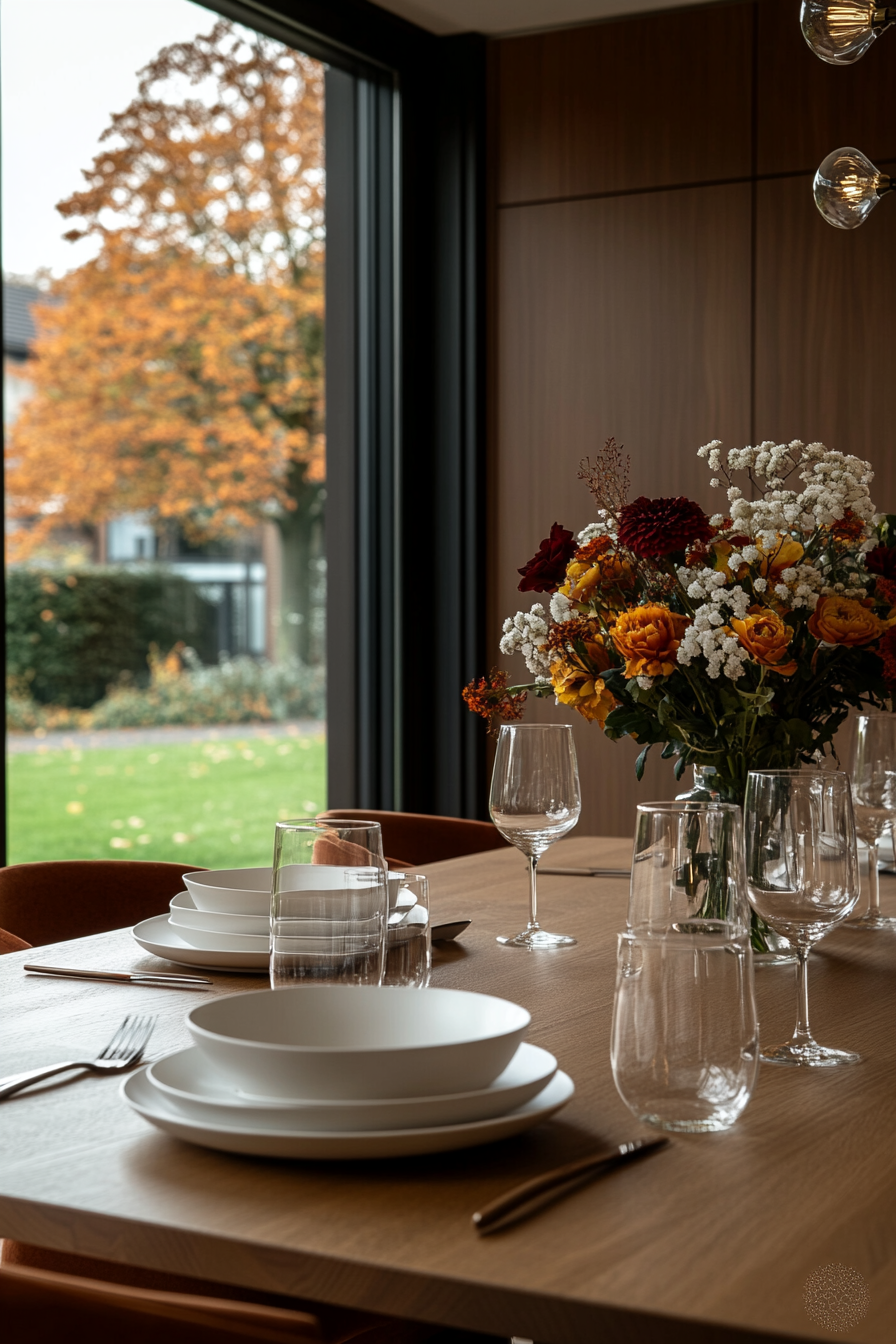
In the bedroom, brown can create a warm and relaxing atmosphere. Wooden furniture, brown bedding, or a brown accent wall can make the room feel cozy and grounded. Mixing brown with lighter shades like cream or white can keep the look fresh and airy.
10. Freshen up with aqua
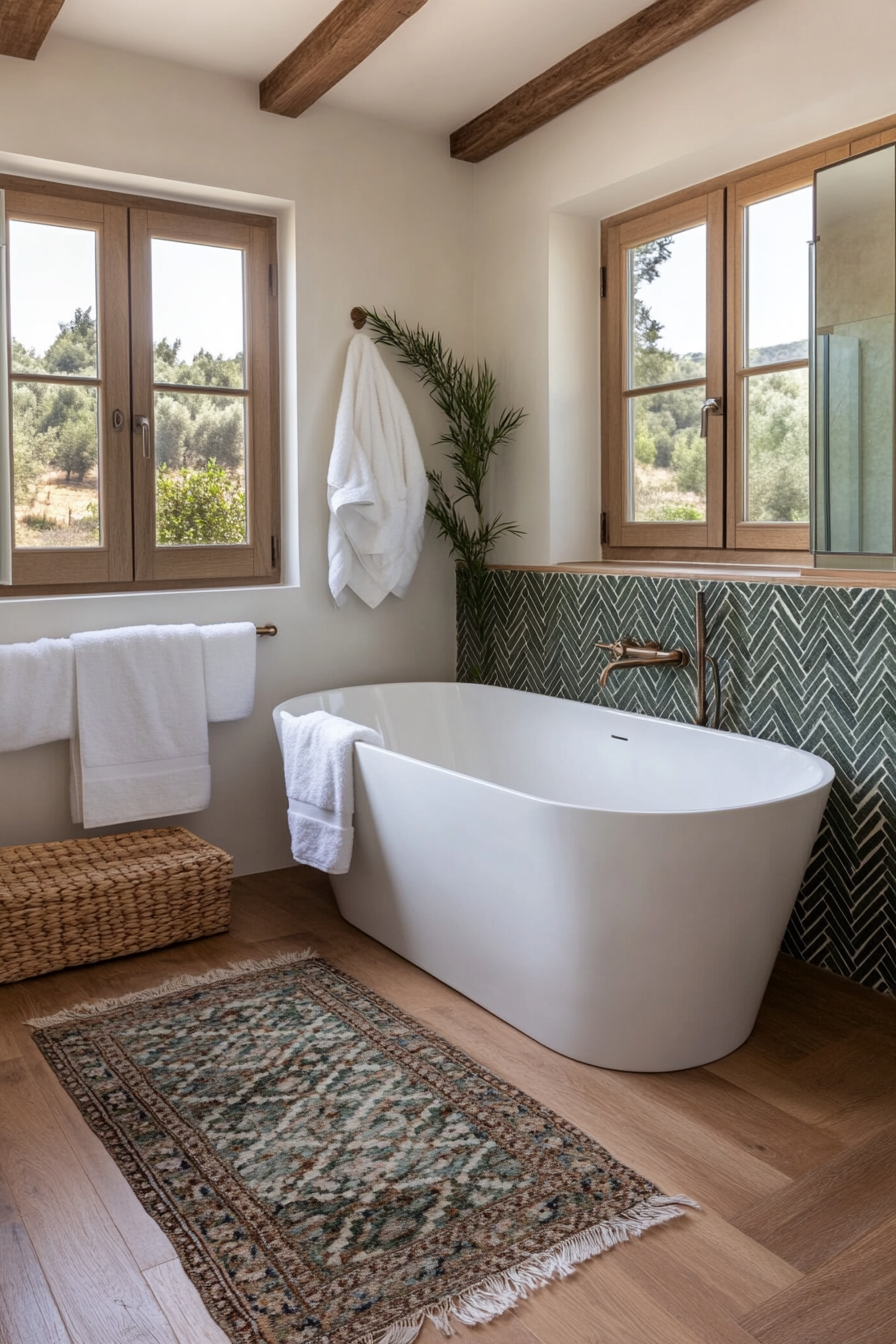
Aqua, a mix of blue and green, is associated with freshness, calm and rejuvenation. Using aqua in interior design can create a calming and invigorating atmosphere. It is a versatile color that can range from soft pastels to bold hues, giving each one its own unique vibe.
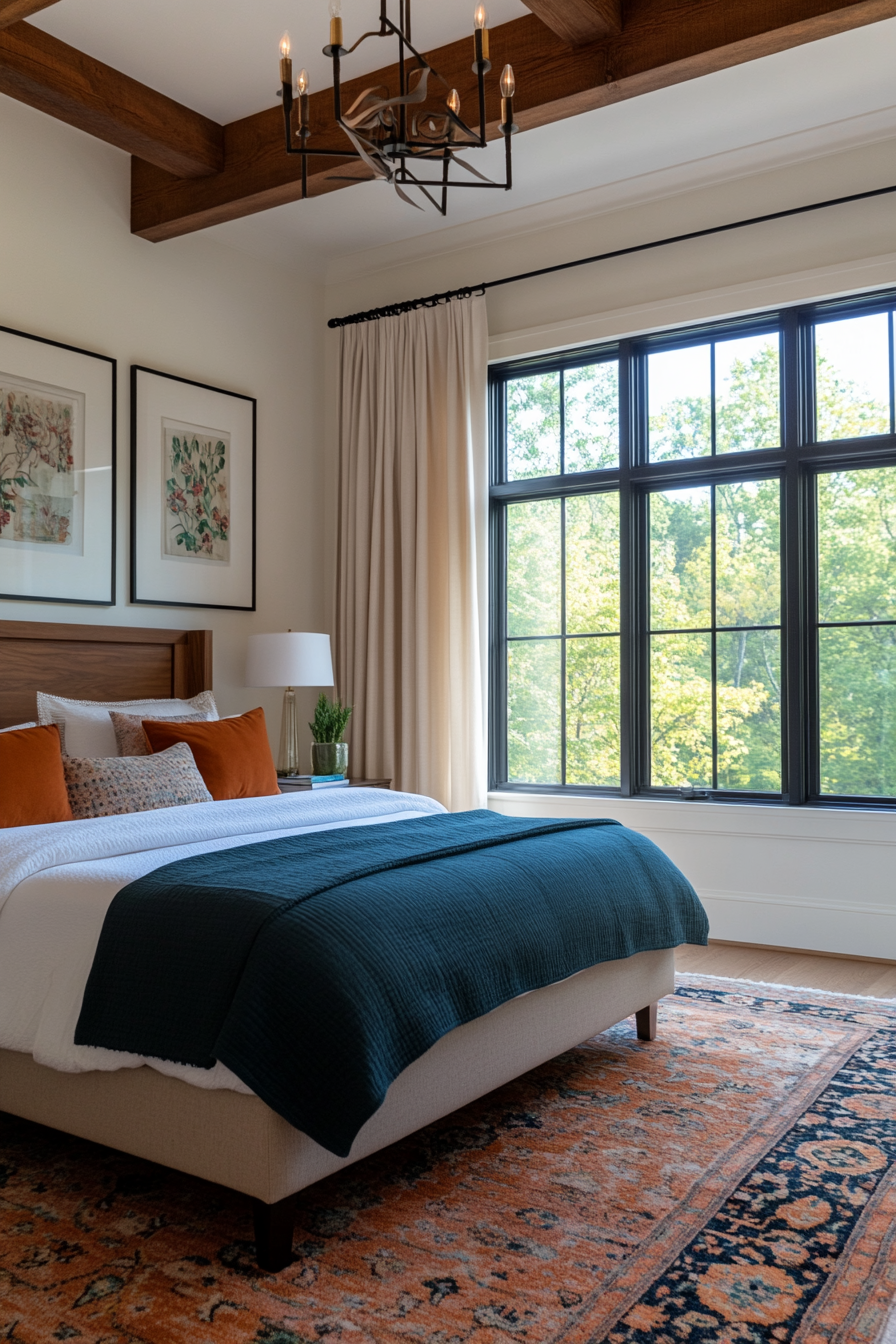
In bathrooms, aqua tiles or accessories can create a refreshing spa atmosphere. Light aqua or mint can feel clean and serene, while deeper aqua tones can add a touch of luxury. Combining aqua with white or light wood finishes can enhance the fresh and airy feel.
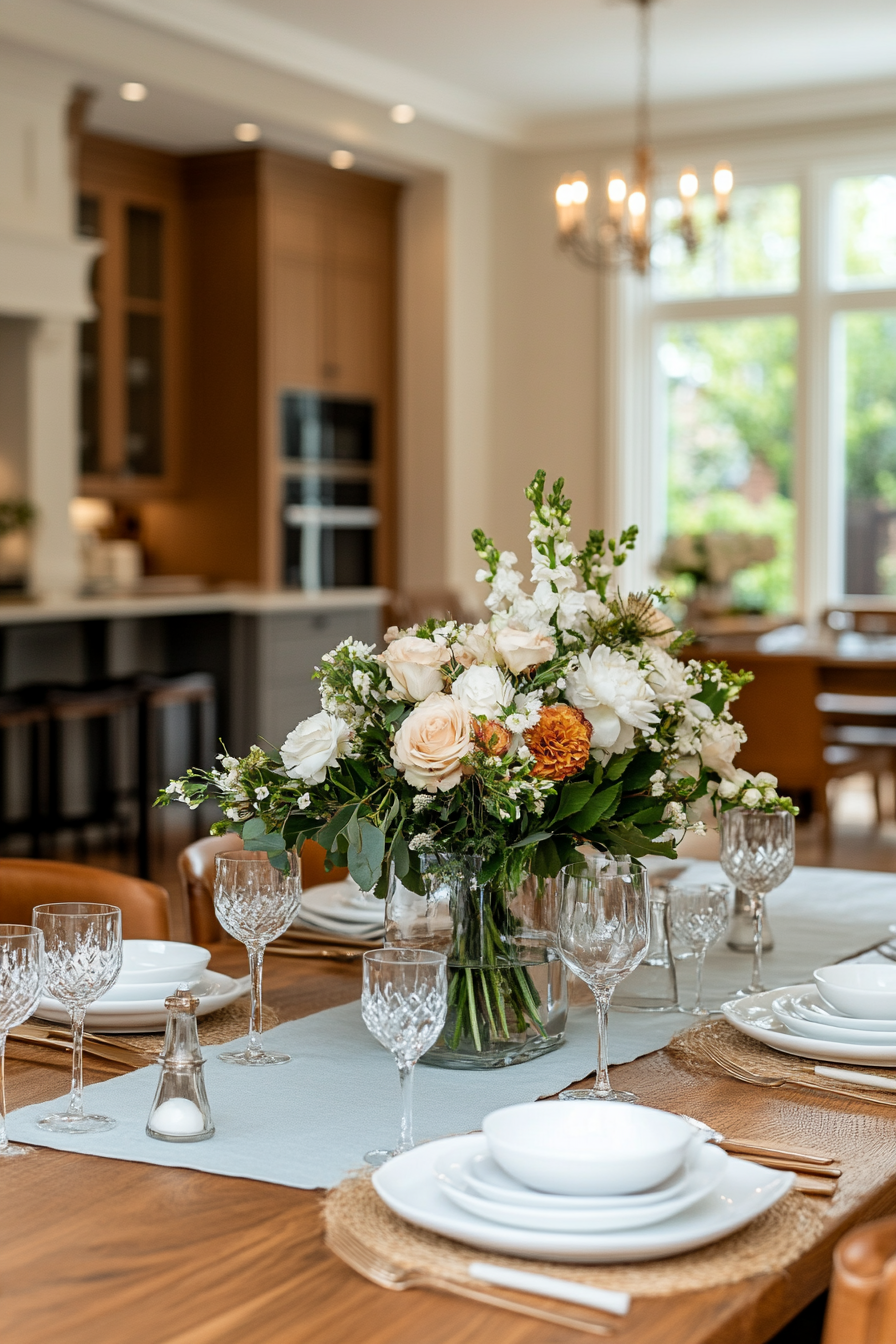
In the bedroom, aqua can create a calming and soothing atmosphere. Consider aqua bedding, curtains, or a feature wall to give the room a restful and inviting feel. Mixing aqua with neutral tones like beige or gray can keep the look balanced and elegant.
11. Add elegance with gray
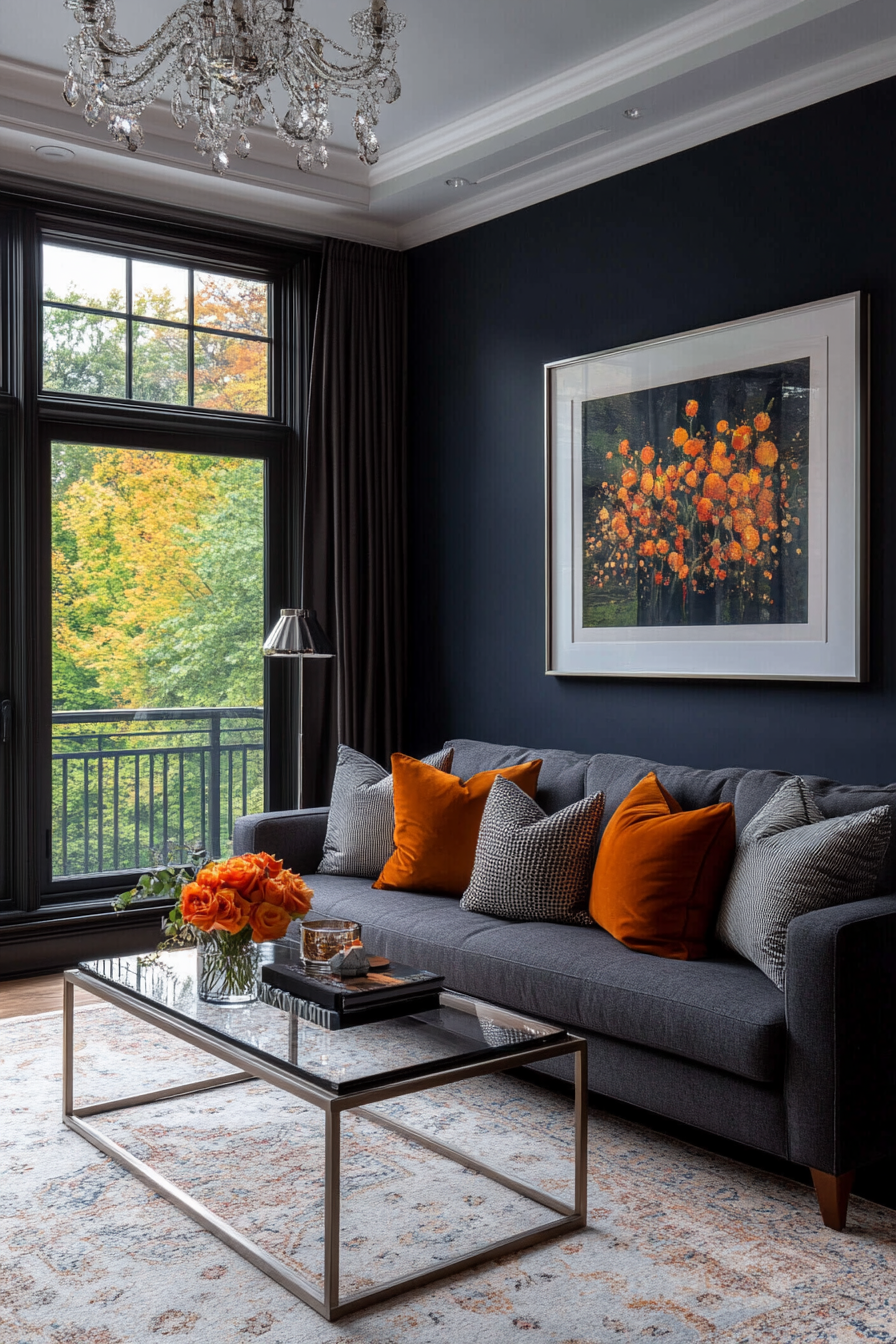
Gray is often associated with sophistication, balance and neutrality. Using gray in interior design can create an elegant and modern atmosphere. It is a versatile color that can range from light gray tones to deep charcoal tones, each exuding its own unique charm.
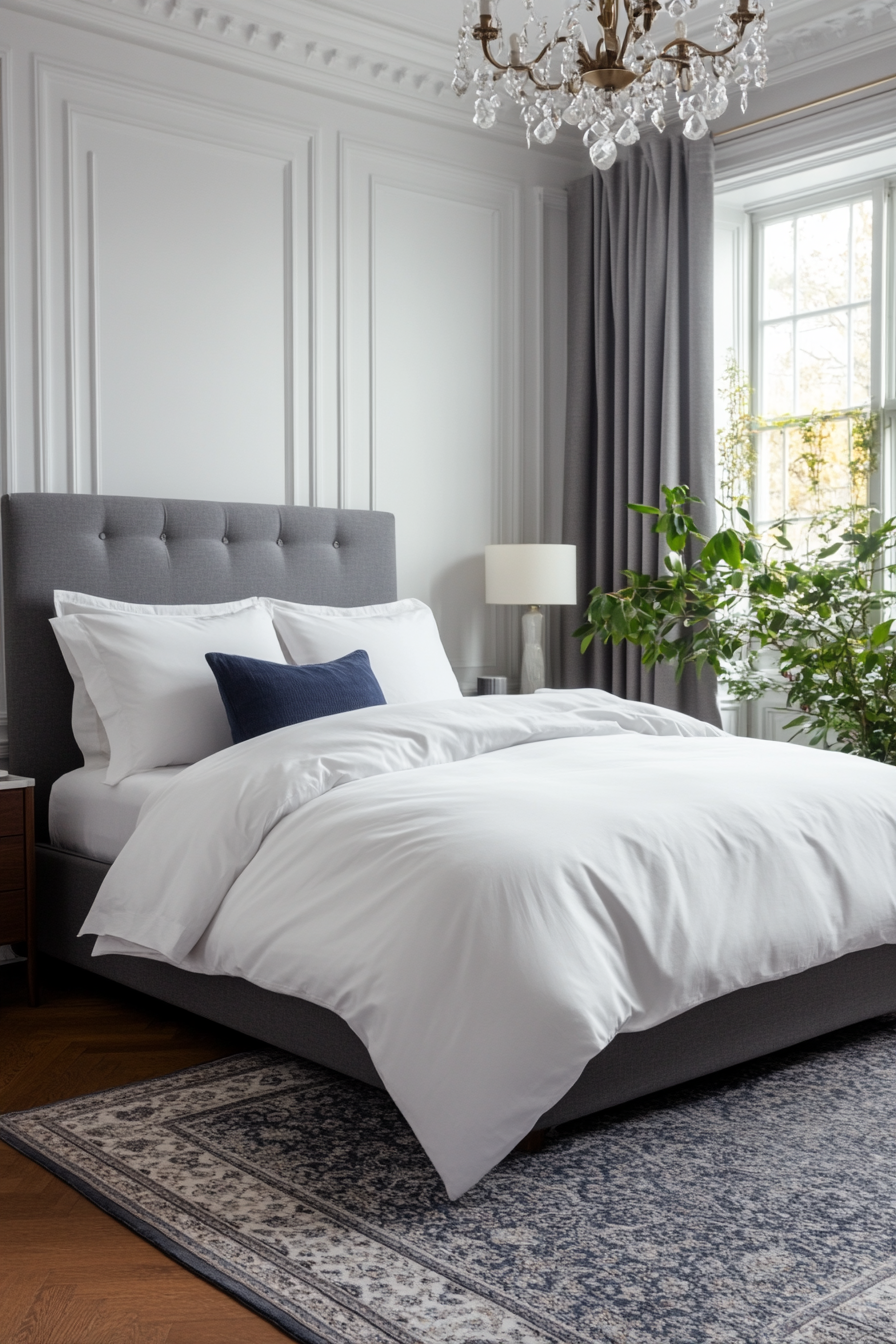
In living rooms, gray walls or furniture can create an elegant and calming atmosphere. Consider gray sofas, rugs or curtains to add to the elegance of the room. Combining gray with metallic accents like silver or chrome can add a modern touch.
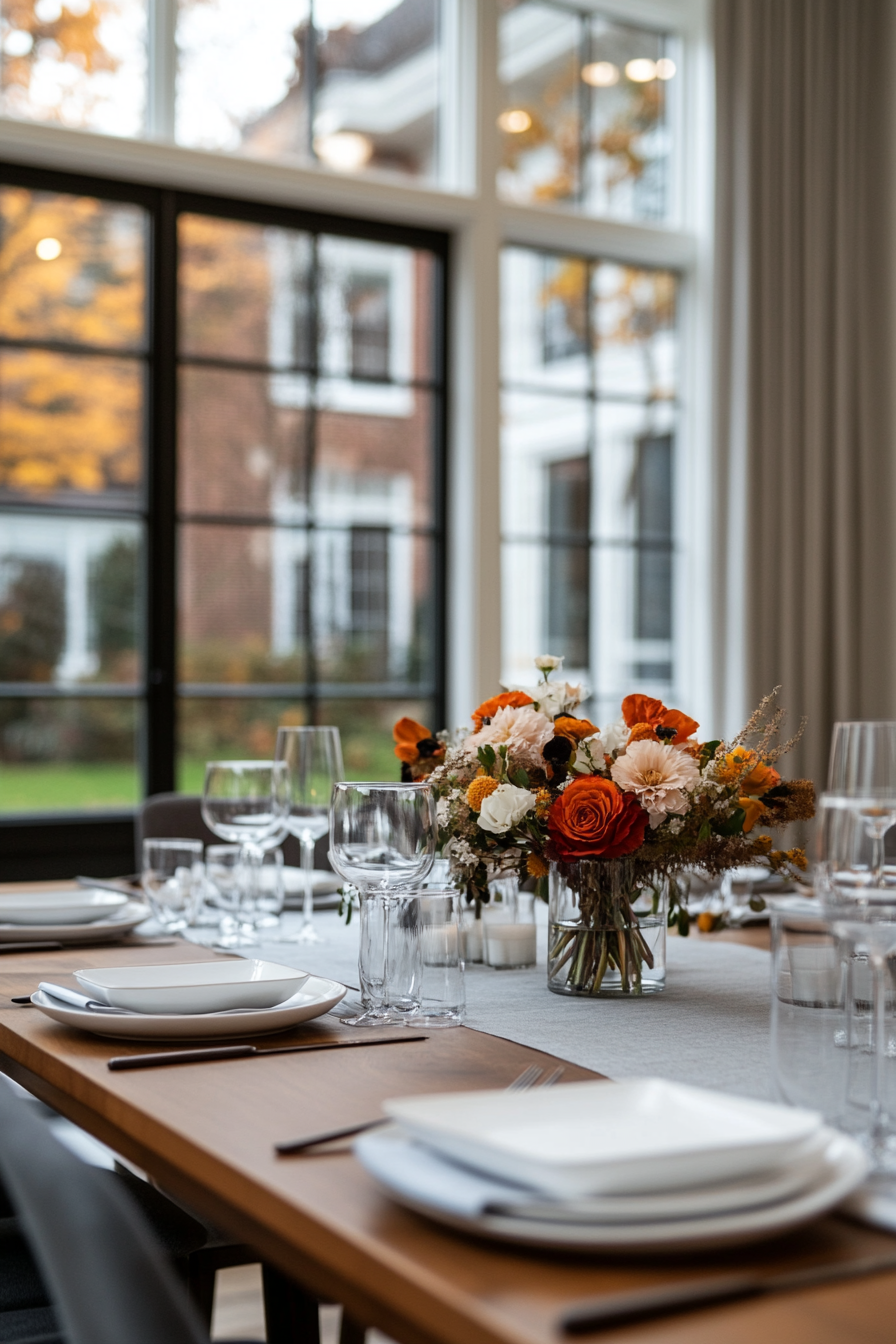
In the bedroom, gray can create a restful and balanced environment. Light gray walls, bedding, or a gray upholstered headboard can give the room a calm and stylish feel. Mixing gray with soft pastels like pink or blue can add a touch of warmth and softness.
12. Brighten with white
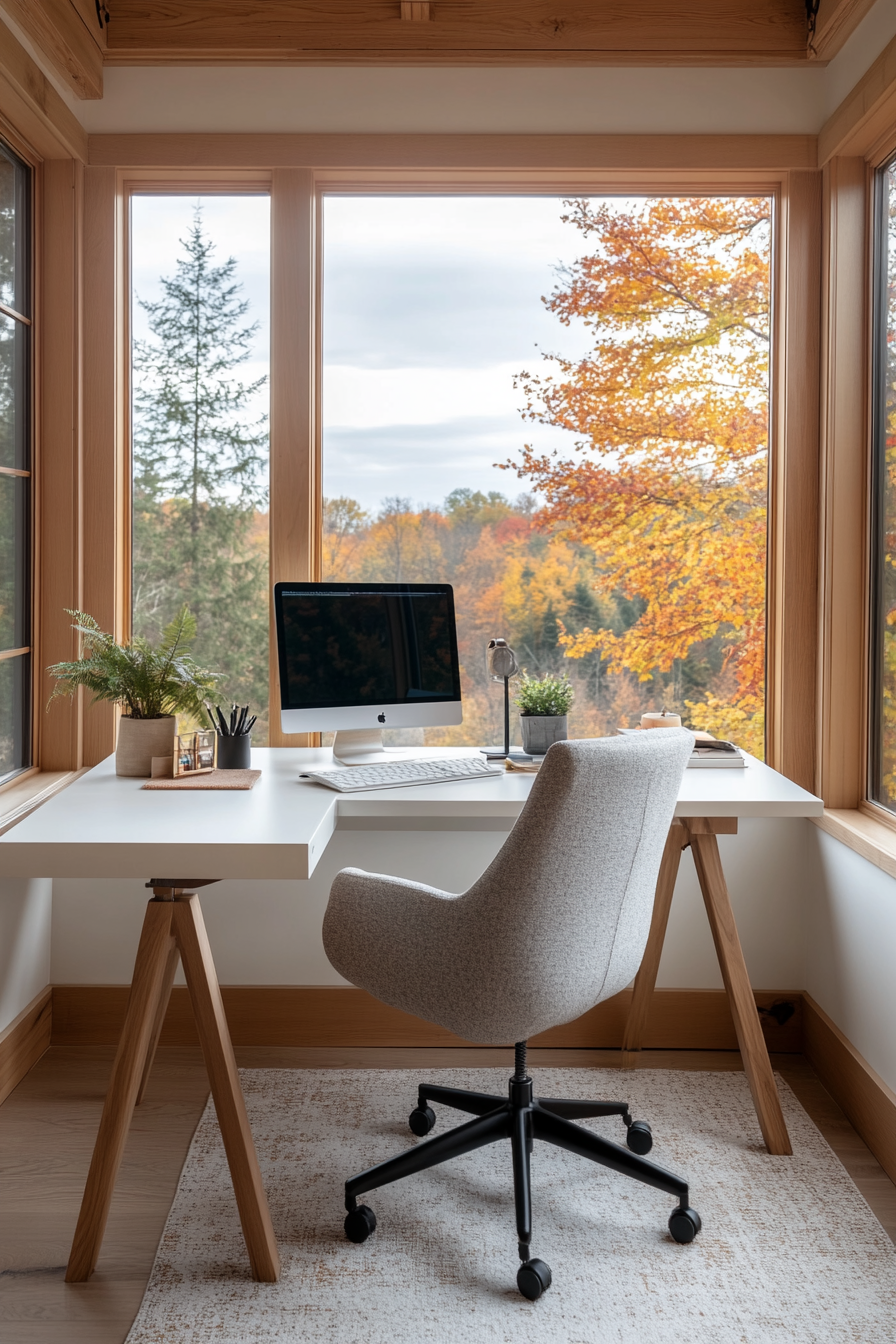
White is often associated with purity, simplicity and focus. Using white in interior design can create a clean, uncluttered environment that promotes concentration and clarity. It is an ideal color for minimalist designs and gives rooms an open and airy feel.
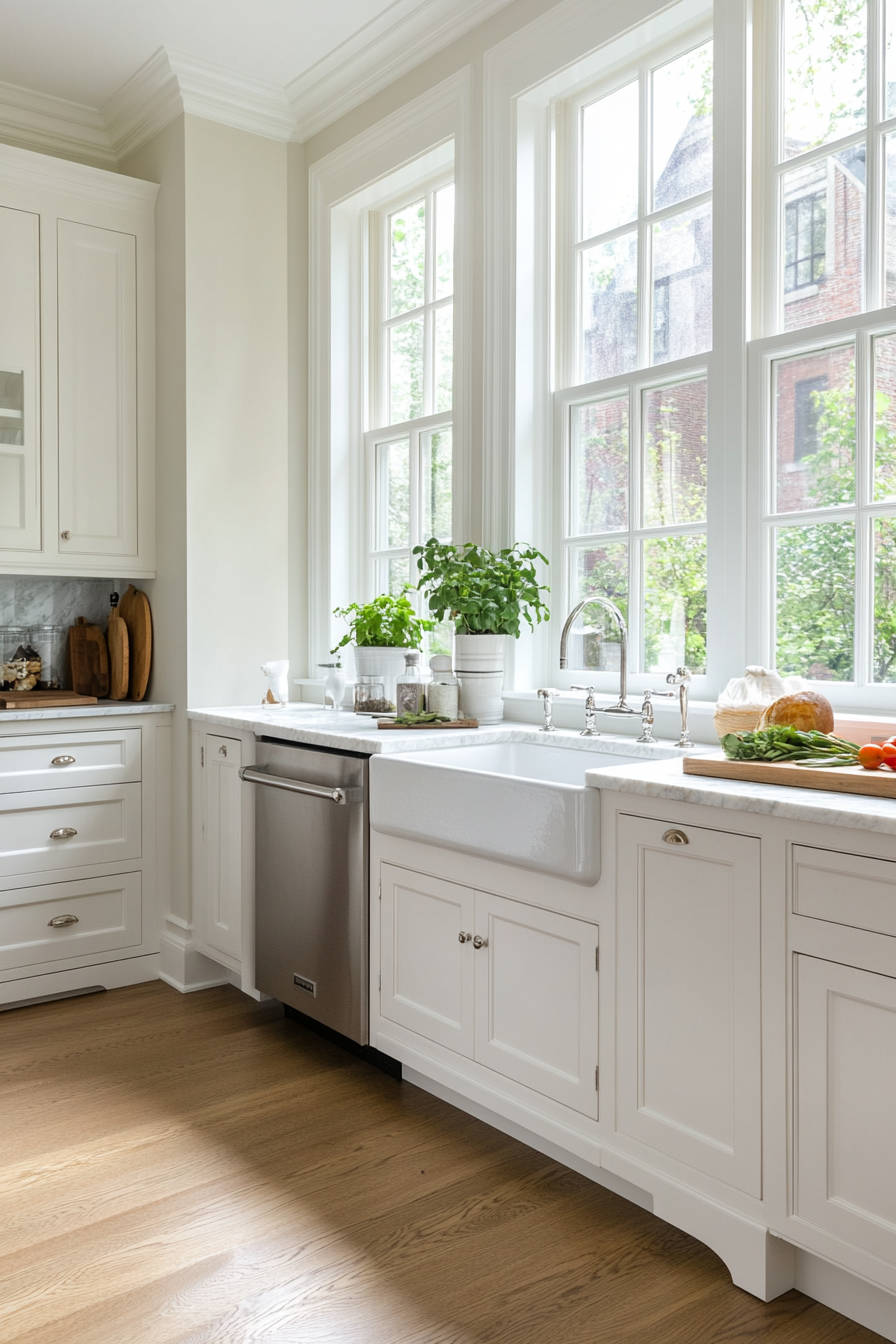
In home offices, a white color scheme can increase concentration and productivity. Consider white walls, desks and storage solutions to create a streamlined workspace. Adding some colorful accessories can prevent the room from feeling too sterile.
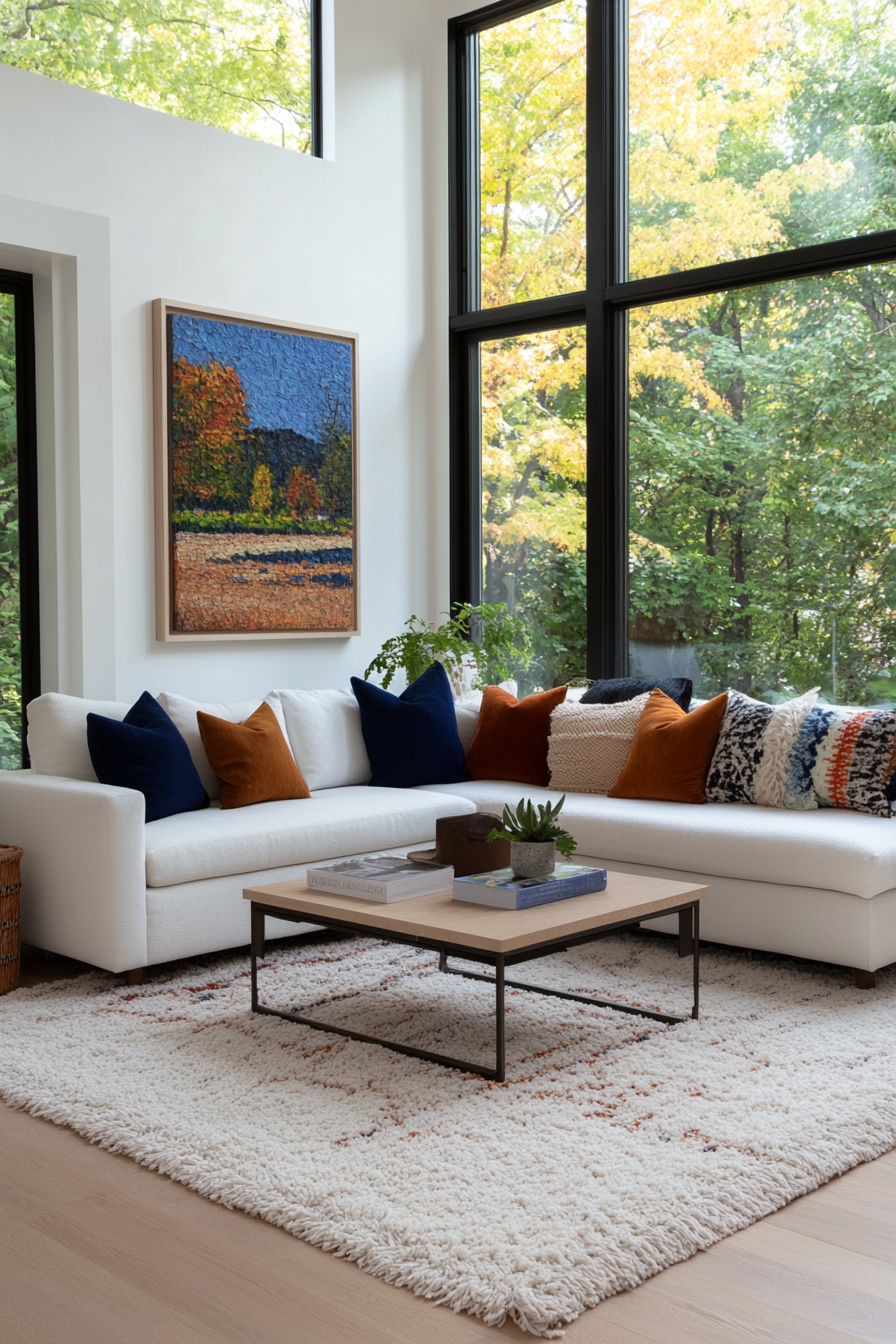
In kitchens, white can create a timeless and fresh look. White cabinets, countertops, and tiles can make the room feel larger and more open. Combining white with natural materials such as wood or stone can add warmth and texture.
13. Ground your space with black
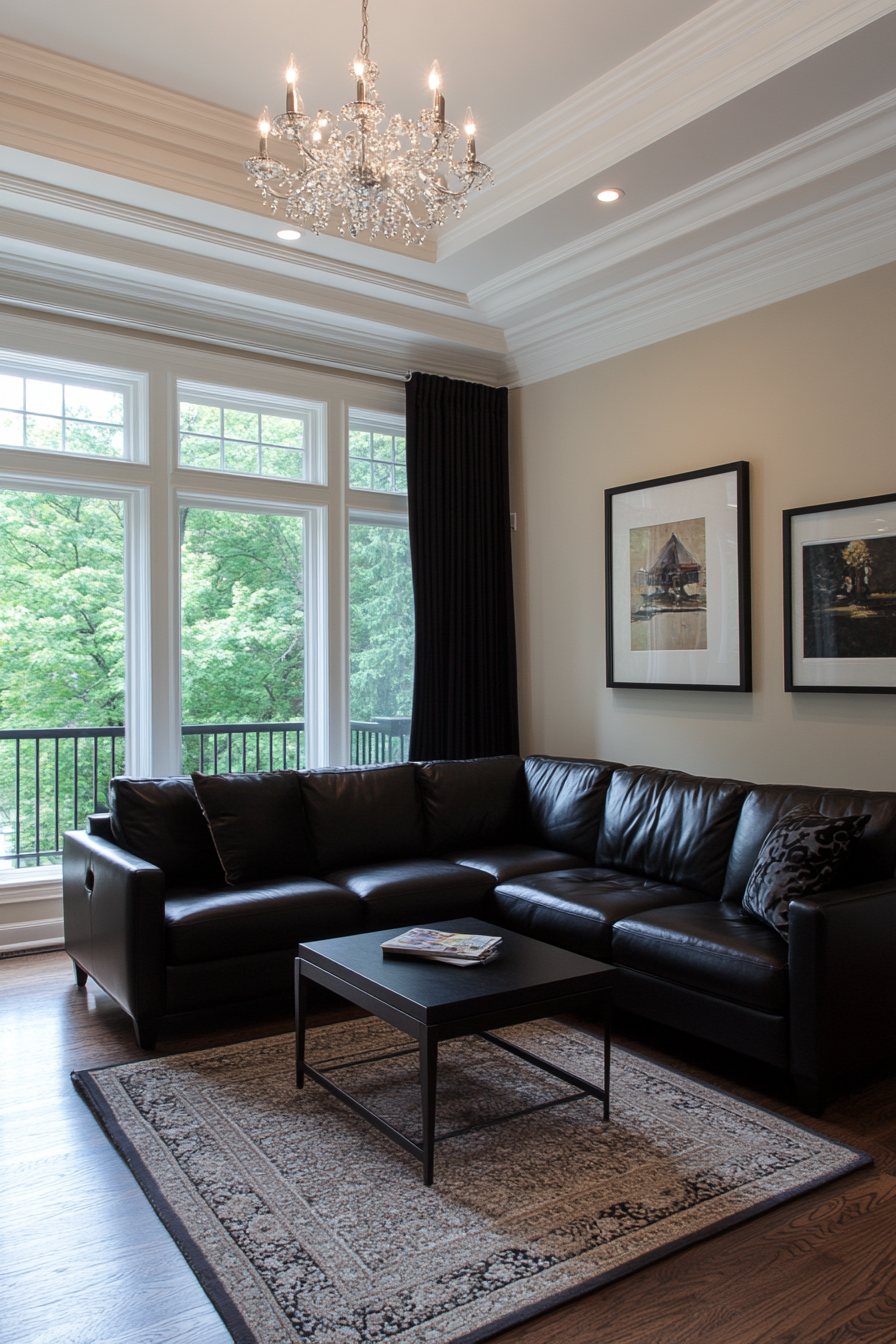
Black is associated with elegance, sophistication and drama. Using black in interior design can create a bold and stylish atmosphere. It is a versatile color that can be used in different shades and finishes to evoke different moods.
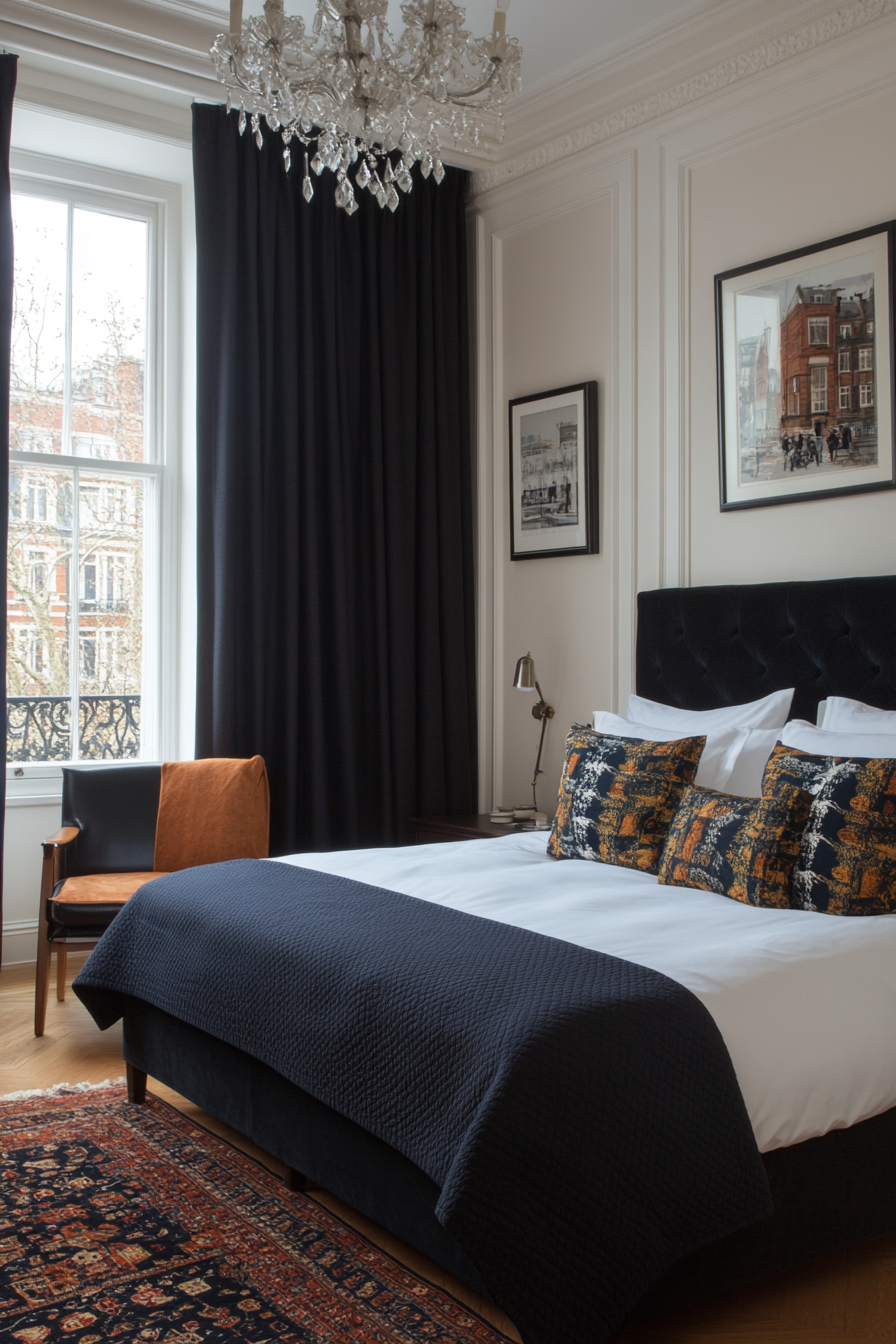
In living rooms, black furniture such as leather sofas or black coffee tables can add a touch of luxury and depth. Consider black accents such as pillows, rugs, or artwork to make a dramatic statement. Combining black with metallic accents like gold or silver can enhance the elegance of the room.
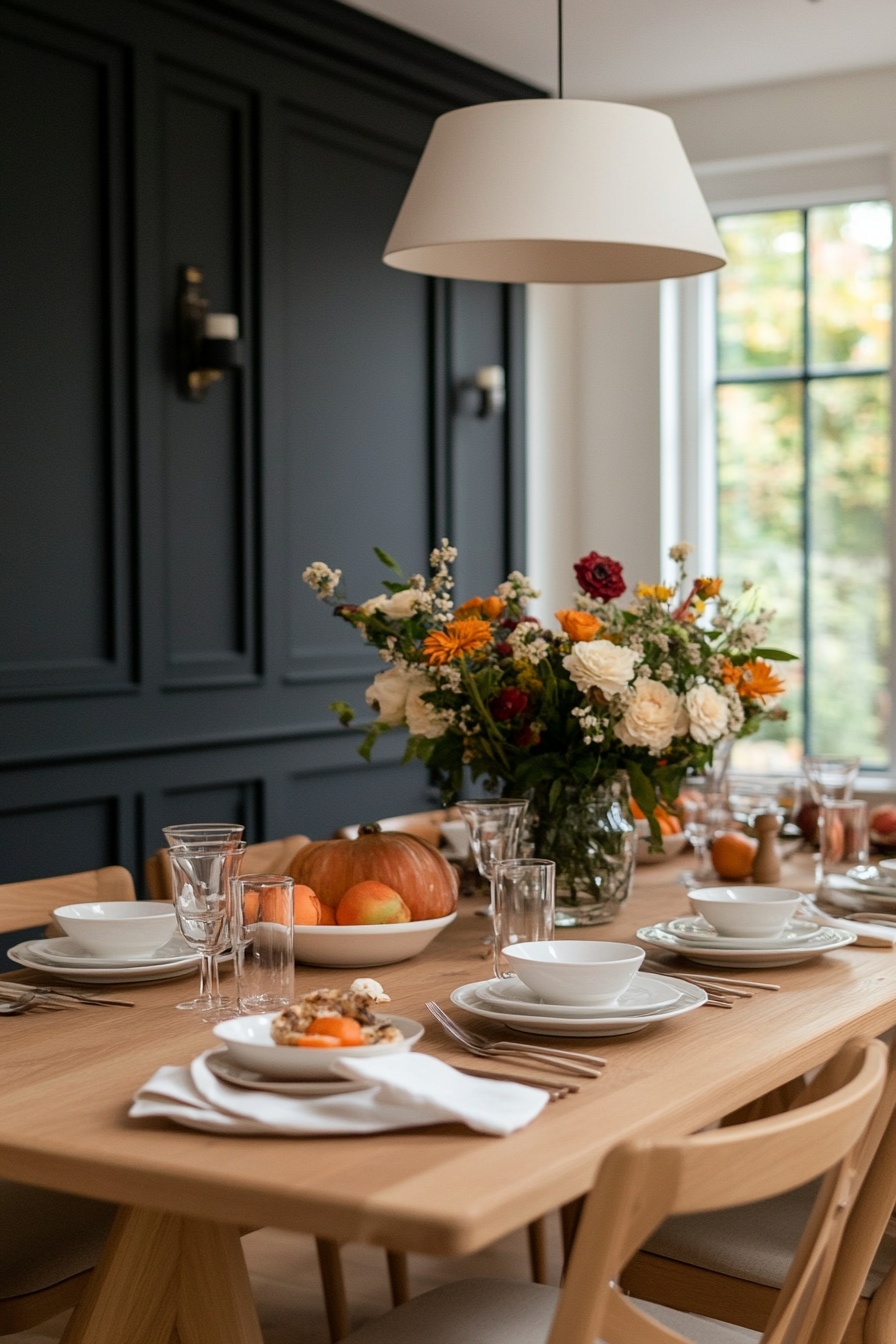
In the bedroom, black can create an elegant and intimate atmosphere. Black bedding, curtains or a feature wall can make the room feel cozy and inviting. Mixing black with lighter shades like white or gray can keep the look balanced and fresh.
14. Bring joy with turquoise
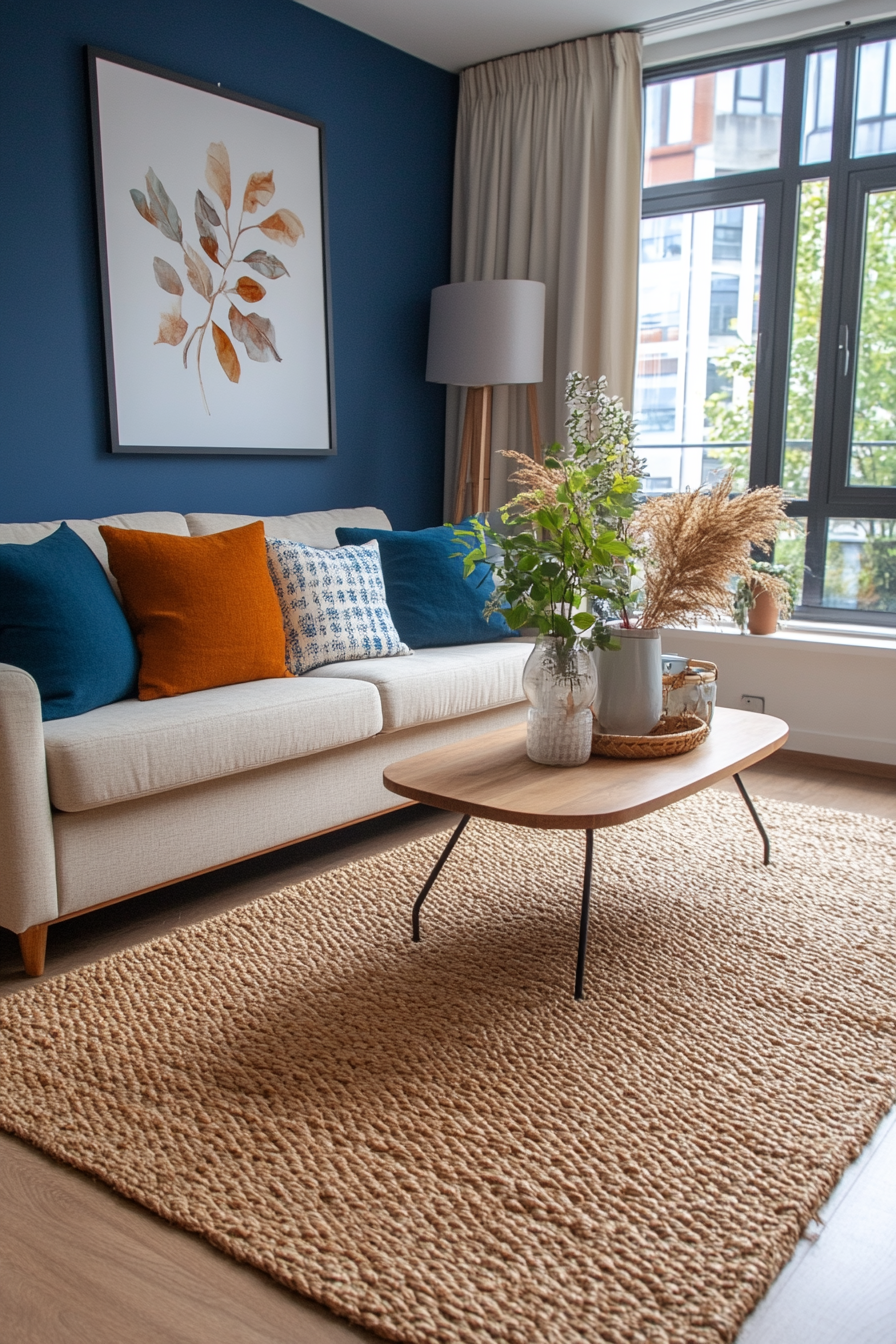
Turquoise is often associated with joy, creativity and calm. Using turquoise in interior design can create a lively and refreshing atmosphere. It is a versatile color that can range from soft pastels to bold hues, each with its own unique charm.
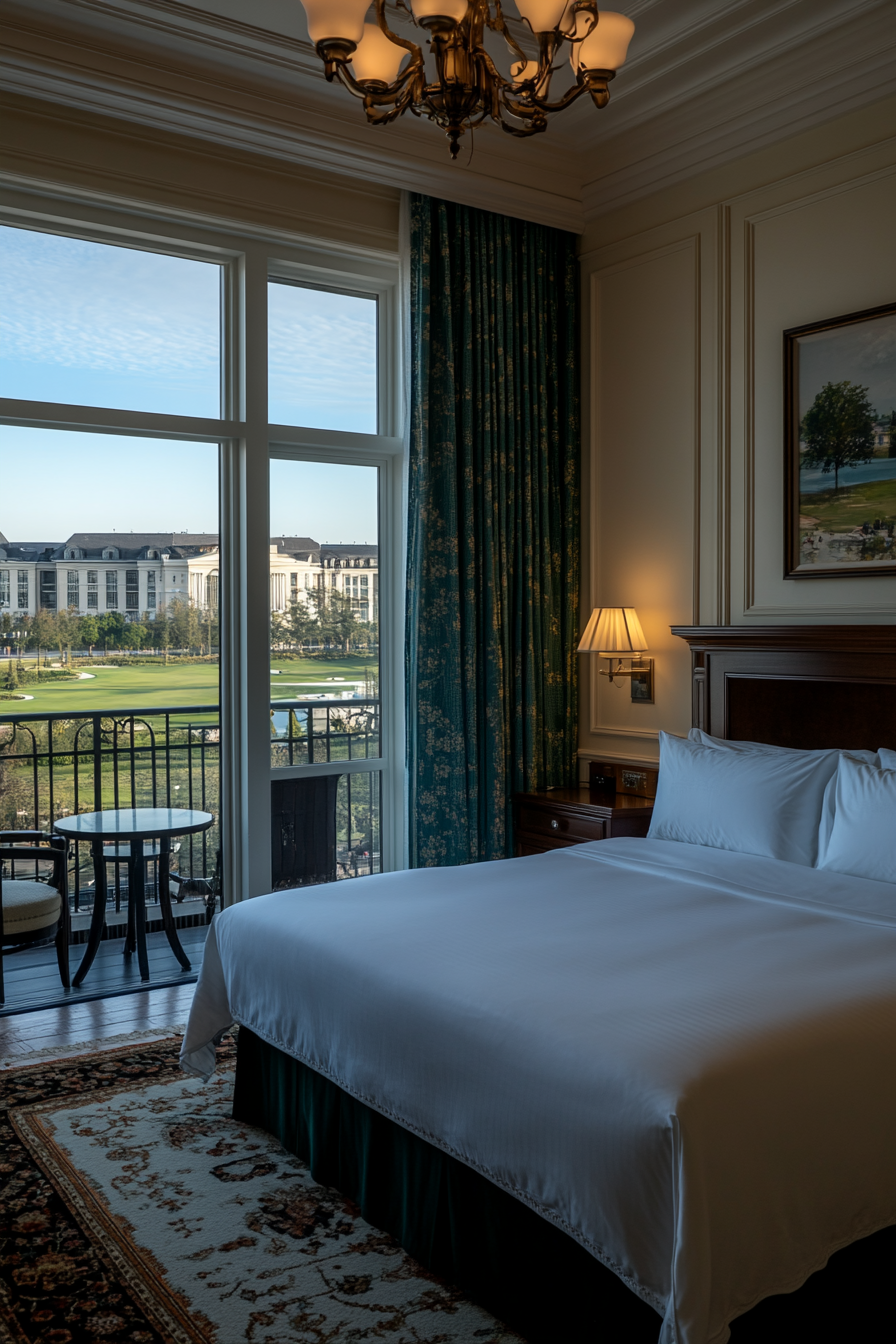
In living rooms, turquoise walls or furniture can create a cheerful and inviting atmosphere. Consider turquoise sofas, rugs or curtains to add to the vibrancy of the room. Combining turquoise with neutral tones like white or gray can balance its boldness.
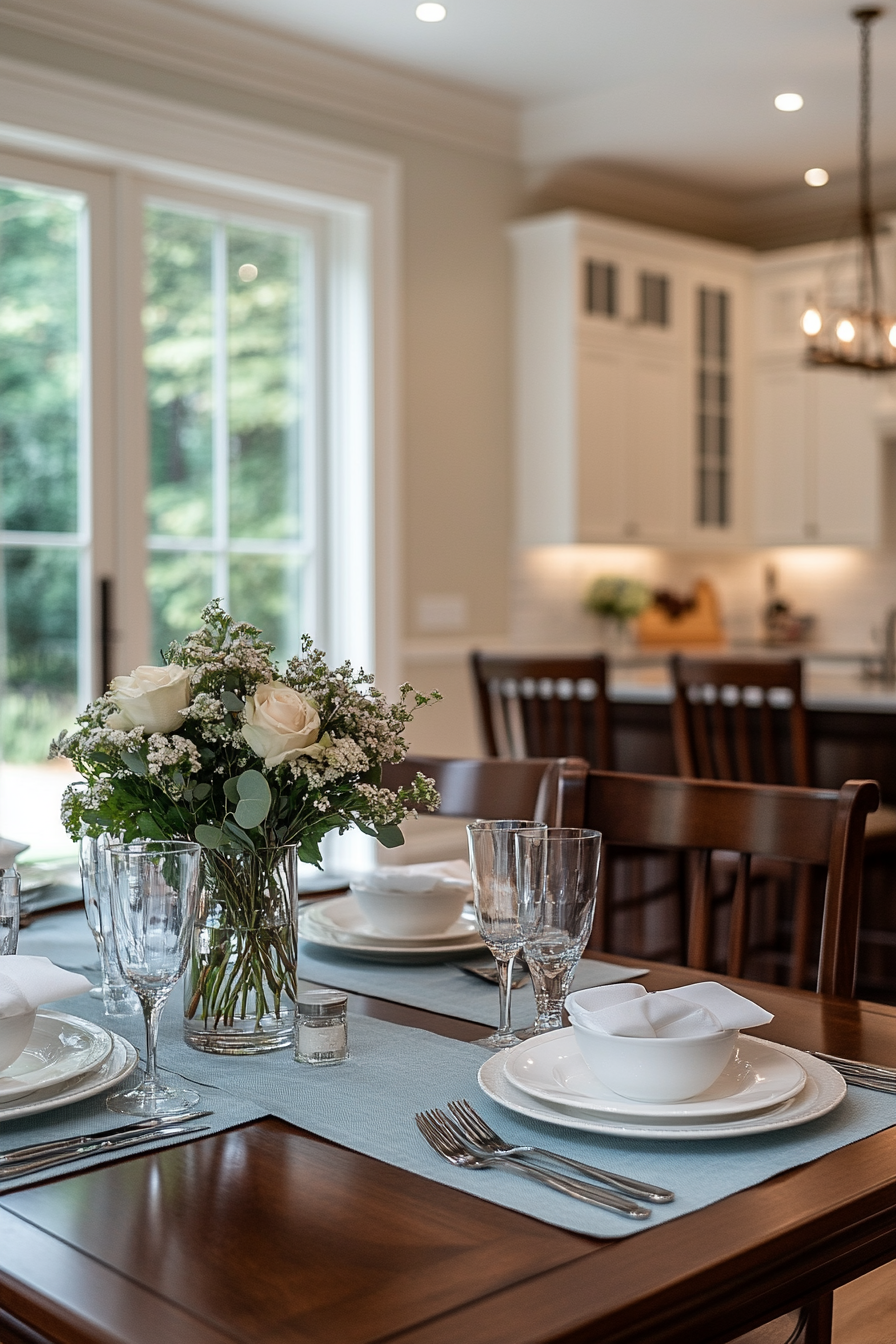
In the bedroom, turquoise can create a calming and refreshing atmosphere. Turquoise bedding, curtains, or a feature wall can make the room feel restful and inviting. Mixing turquoise with soft pastels like pink or blue can add a touch of warmth and softness.
15. Awaken nature with earth tones
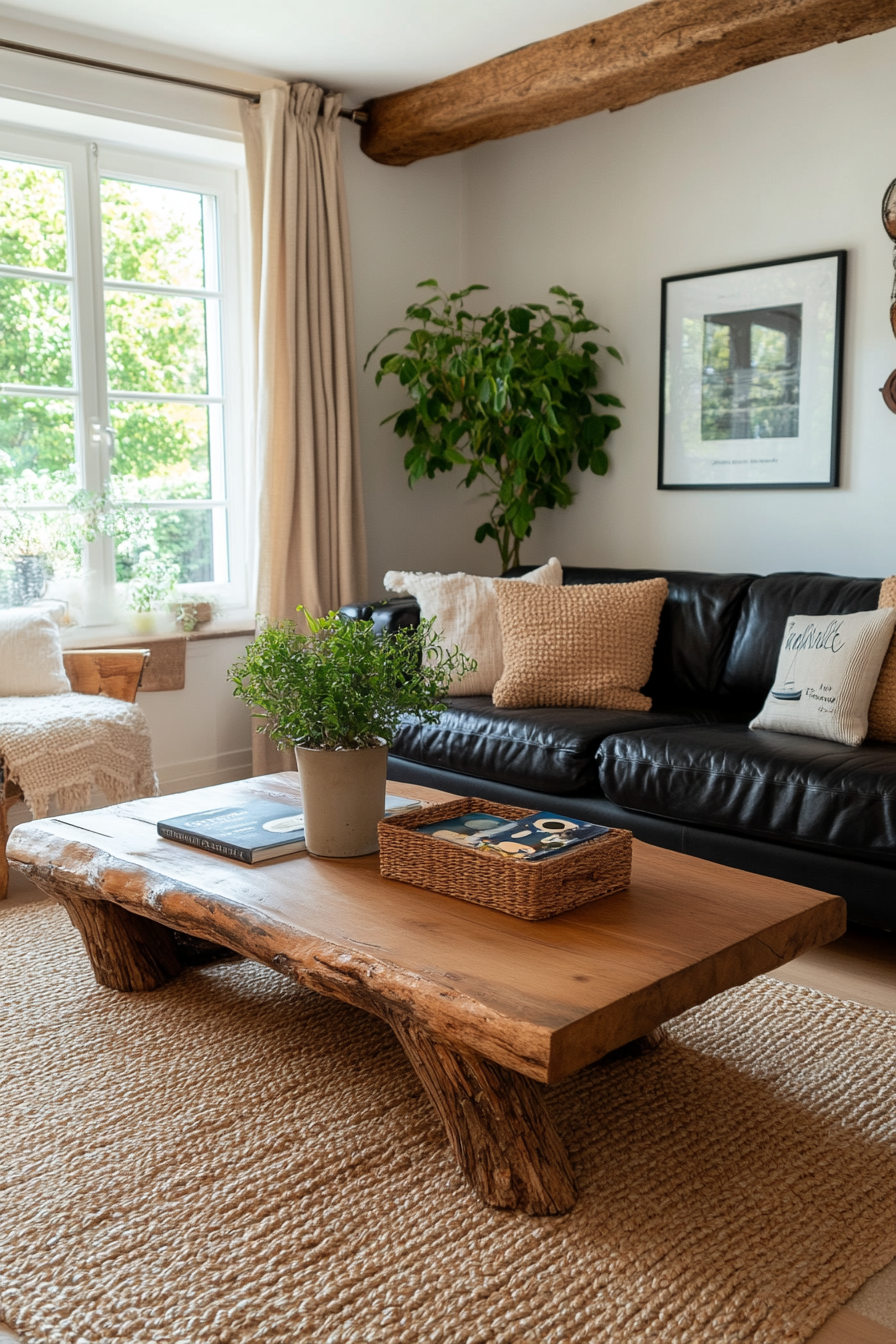
Earth tones such as brown, green and beige are associated with nature, stability and comfort. Using earth tones in interior design can create a grounded and welcoming atmosphere. It’s a versatile color palette that goes well with different styles, from rustic to modern.
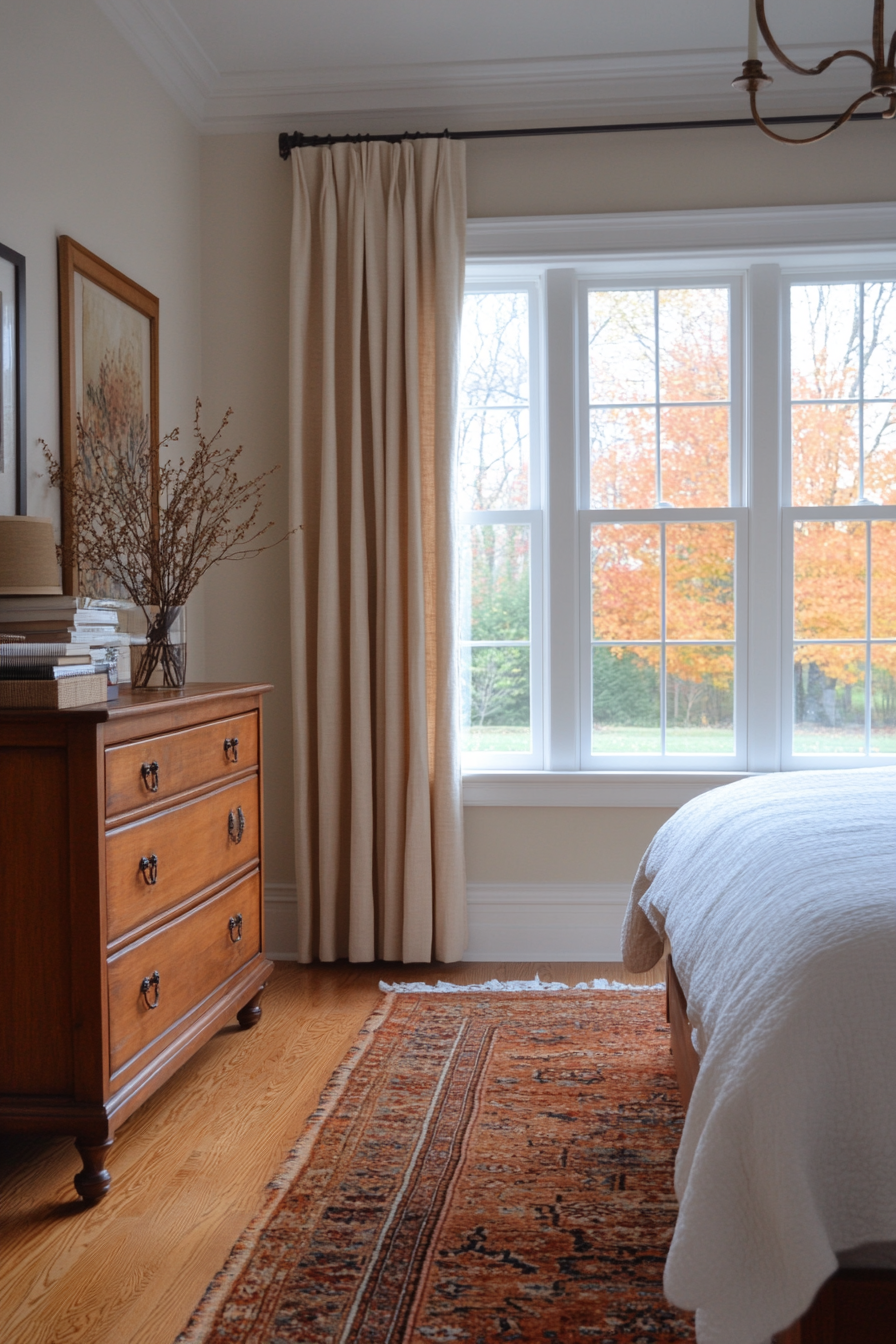
In living rooms, earth-toned furniture such as leather sofas or wooden coffee tables can add warmth and richness. Consider earth-toned rugs or throw blankets to add to the cozy vibe. Combining earth tones with green can create a natural and balanced look.
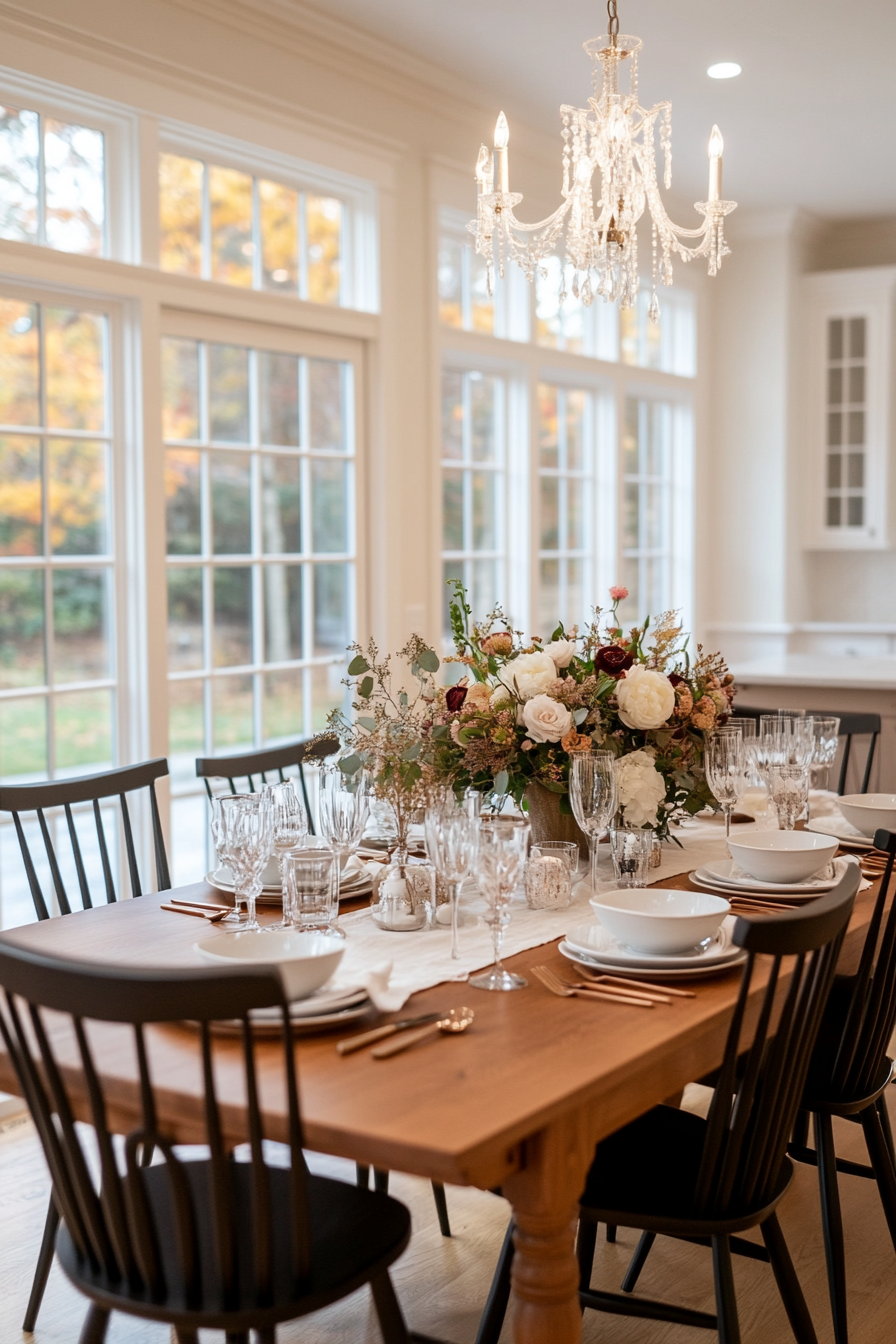
Are you looking to refresh your home decor and create a space that truly reflects your personality and style? One of the most powerful tools in interior design is color psychology. By understanding the emotional and psychological impact of different colors, you can transform your space into a harmonious and inviting environment that promotes positivity and well-being.
The Power of Color
Color has the ability to evoke a wide range of emotions and feelings, from tranquility and calmness to energy and excitement. By carefully selecting the right colors for your home decor, you can create a space that supports your lifestyle and enhances your mood.
Benefits of Using Color Psychology in Home Decor
- Enhances mood and overall well-being
- Creates a cohesive and harmonious space
- Reflects your personality and style
- Increases productivity and focus
- Makes a lasting impression on guests
Practical Tips for Using Color Psychology in Home Decor
When incorporating color psychology into your home decor, consider the following tips:
- Start by identifying the mood you want to create in each room
- Choose a color scheme that aligns with that mood
- Use different shades and tones of the same color to create depth and interest
- Consider the natural light in each room when selecting colors
- Experiment with accent colors to add pops of color and visual interest
Case Studies: Real-Life Examples of Color Psychology in Action
Living Room
For a cozy and welcoming living room, consider using warm tones like terracotta, mustard yellow, and deep red. These colors can create a sense of comfort and intimacy, perfect for relaxing and unwinding after a long day.
Home Office
If you want to boost creativity and focus in your home office, consider incorporating shades of blue and green. These colors are known for their calming and soothing effects, making them ideal for a productive work environment.
Bedroom
In the bedroom, opt for soft and soothing colors like pastel blue, lavender, and sage green. These colors can promote restful sleep and relaxation, creating a peaceful sanctuary for rest and rejuvenation.
First-Hand Experience: How Color Psychology Transformed My Home
After learning about the power of color psychology, I decided to revamp my living room using a combination of warm earth tones and rich textures. The result was a space that felt inviting and cozy, perfect for spending time with family and friends. I also incorporated pops of vibrant color through artwork and accessories to add visual interest and personality to the room. The transformation was truly remarkable, and I couldn’t be happier with the results!
By unlocking the secrets of color psychology and incorporating them into your home decor, you can create a space that not only looks beautiful but also supports your emotional well-being and enhances your quality of life. So go ahead, unleash the power of color and transform your space into a reflection of your unique style and personality!
